#black british theatre awards
Text
Talawa star Tanji is nominated for Black British Theatre award
Kibong Tanji, the star of the Fairfield Halls-based Talawa Theatre’s original musical play, Recognition, based around the life and works of Croydon-based composer Samuel Coleridge-Taylor, has been shortlisted for best female lead actor in this year’s Black British Theatre Awards.
Leader of the band: award nominee Kibong Tanji, as ‘Song’, in the Talawa Theatre production of Recognition
It is…

View On WordPress
#Black British Theatre Awards#Fairfield Halls#Kibong Tanji#Recognition#Samuel Coleridge-Taylor#Talawa Theatre Company#The Wreck
0 notes
Text

Deborah Kerr
#Deborah Kerr#actress#beauty#talent#SUTS 2023#TCM#classic#film#British#Golden Globe Award#Black Narcissus#The Night of the Iguana#Heaven Knows Mr Allison#The Sundowners#From Here to Eternity#An Affair to Remember#The King and I#movies#theatre#Metro-Goldwyn-Mayer#MGM#King Solomon's Mines#The Prisoner of Zenda#Young Bess#Dream Wife#Broadway#The Grass Is Greener#television#marriage#daughters
16 notes
·
View notes
Text
Black actor who faced abuse over role in Romeo & Juliet calls for industry-wide action
Francesca Amewudah-Rivers, who played Juliet alongside Tom Holland’s Romeo, says racist abuse went on for months
The actor Francesca Amewudah-Rivers, who received a barrage of online racial abuse after being cast in a production of Romeo & Juliet this year, has called for industry-wide action to protect black and brown actors.
The abuse aimed at Amewudah-Rivers began after the Jamie Lloyd Company theatre group announced the cast of its production in April, with Amewudah-Rivers to play Juliet and the Spider-Man star Tom Holland playing Romeo.
Amewudah-Rivers has revealed she also received hate mail, and that she did not feel safe while working on the play, her West End stage debut, at the Duke of York’s theatre.
“There were many days where I didn’t know how I was going to get through it,” she told the Stage. “The flurry of abuse was sustained throughout the whole job. I received death threats, hate mail sent to the theatre. I didn’t feel safe at work.”
‘Too much to bear’: Black actors condemn racial abuse of Romeo & Juliet starRead more
The 26-year-old, who was nominated at this year’s Black British theatre awards, said the minimal set and closeup camerawork of the production made her feel “very exposed” on stage. “Off the back of the abuse, having to stare down the camera lens and have my face be blown up in this theatre was really tough mentally,” she said.
Amewudah-Rivers said the harassment also affected her family and friends, as well as the show’s cast, crew and producers at the Jamie Lloyd Company, who condemned the initial abuse in a statement on social media at the time and said further harassment would be reported.
The incident led to an open letter of solidarity with Amewudah-Rivers being signed by more than 800 predominantly black female and non-binary actors – including Lashana Lynch, Sheila Atim, Marianne Jean-Baptiste, Lolly Adefope, Freema Agyeman, Wunmi Mosaku and Tamara Lawrance.
Amewudah-Rivers described her experience as an “incredibly tough” induction into the West End. She said: “I know what it means to move through life in a black body. Racism is something we have to navigate every day, so I was very aware of the potential for something like this to happen.
“I think what I was unprepared for was how long it went on for, and also having to navigate it while doing the job. It was four months of battling against this energy, and it’s something I still have to deal with. I really had to reckon whether it was worth it, this sustained feeling of duress.”
The actor called for “broader conversations industry-wide” about the protection of global-majority actors and said it was “not enough to represent our communities on stage, there also needs to be an infrastructure of support”.
“Safety has to be at the forefront. We can’t do our best work if we don’t feel safe, if we don’t feel held, if we don’t feel understood,” she said. “I think more needs to be done, especially because I know I’m not alone. I know other actors who have had similar experiences, more recently, too.”
According to Amewudah-Rivers, the response to her casting showed how the UK theatre sector was still lagging behind in terms of onstage racial diversity.
“For it to cause such outrage that I was cast in this role means we have a long way to go. Theatre has a legacy of community, it should represent society. Especially in London – there’s a big black British community here and in the UK. It shouldn’t be a surprise. Our histories as black people have been erased. It’s about re-education. I’m not the first black Juliet, and I won’t be the last.”
193 notes
·
View notes
Text
Since Andrew is taking some well deserved time away from the public at the moment, let's revisit (or visit for the first time, if you're new here) this stunning photoshoot from Mr. Porter, October 2019, when he was doing press for Modern Love and his Ripley casting had just been announced (yes, it's taken that long for it to come out).
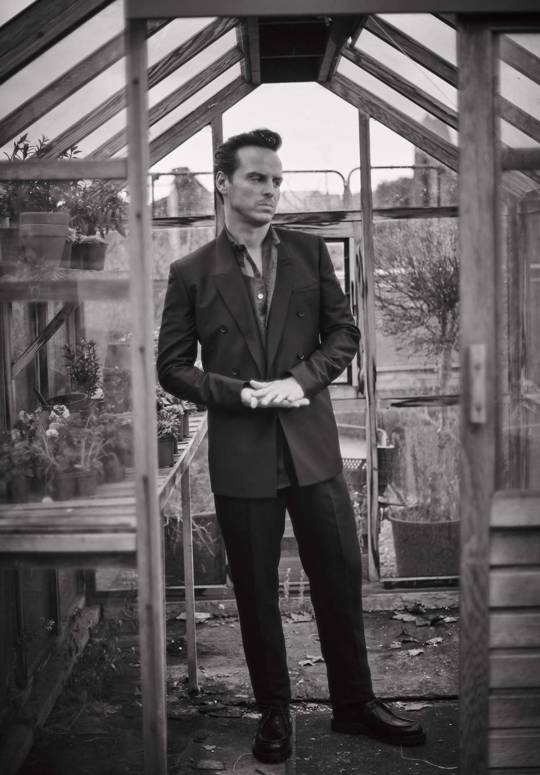
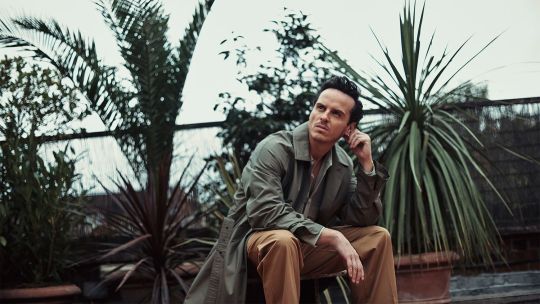
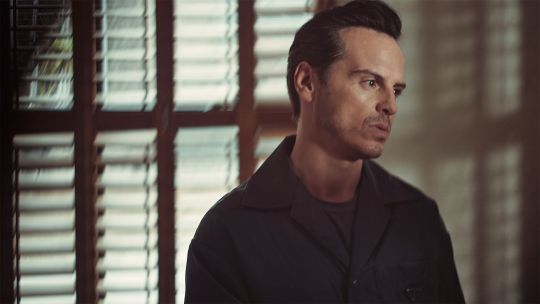
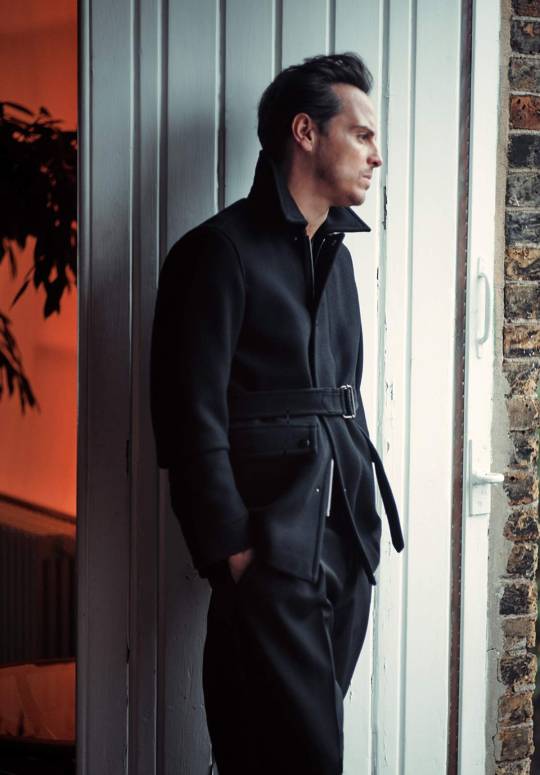
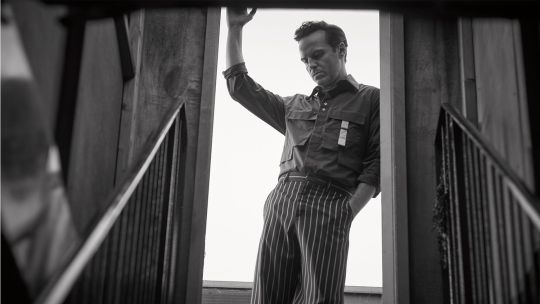
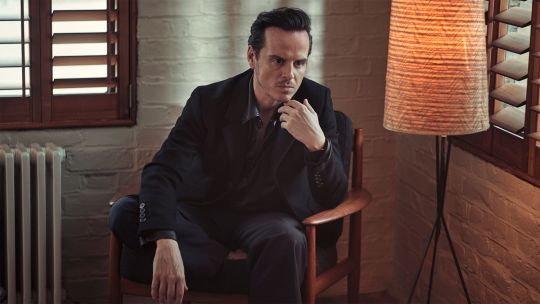
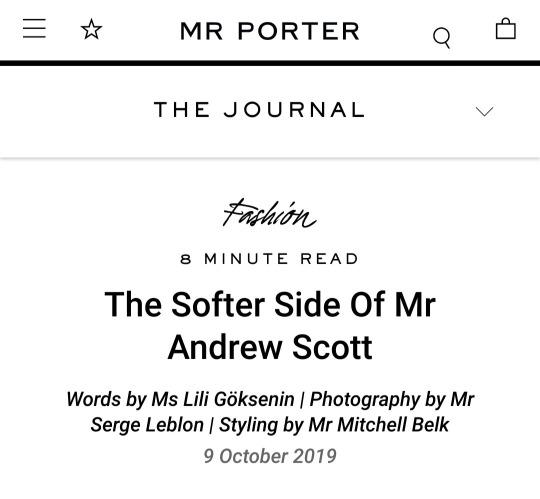
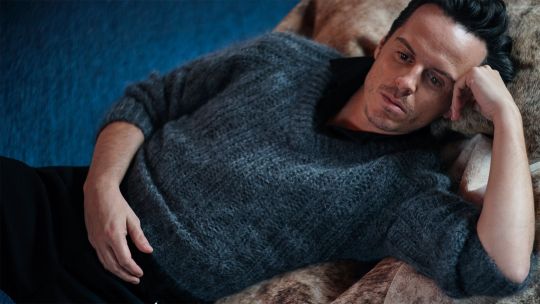
Mr Andrew Scott’s big brown eyes are open wide in amused disbelief. “That was not an Irish accent,” he says in his musical Irish brogue. “That was a West Country accent.” How embarrassing for an interviewer who thought to connect with her subject by lightly mocking Mr Ed Sheeran’s – again – not-Irish accent in his cameo in Mr Scott’s episode of Amazon’s upcoming anthology series, Modern Love. Panic sets in. “It’s all right,” he says, soothingly. “It’s all right. Accents are such funny things.”
You know what else is a funny thing? Sitting with Fleabag’s “hot priest” – 2019’s most unexpected sex symbol – in a wine bar in Bermondsey, southeast London, talking about vulnerability, romcoms and love stories. Or, to take another angle: sitting across the table from the deranged Jim Moriarty and letting him pick out a rosé. That tickles, too. Having Hamlet express the need for a mini-break in, he doesn’t know, Copenhagen? Amsterdam, maybe? Surreal.
But actually, Mr Scott, who is wearing what can only be described as a modified sweatsuit (shorts and a zip-up sweatshirt, no shirt beneath) after our photoshoot isn’t funny funny. No, Mr Scott is serious: reserved and contemplative, but with the energy of a theatre nerd who, every once in a while, rests his head in his hands, cupping his fingers around his eyes to form blinkers while he thinks about a question you’ve just asked. In this quiet wine bar. He’s not an evil murderer, an agent of a shadowy organisation, or an overly excited (wink) cleric. He’s just a nice guy who sympathises about the difficulty of parsing the subtleties of the many accents in the British Commonwealth (and beyond).
Mr Scott is still hot off his run in Fleabag, even though the show ran from March to April of this year. A few weeks ago, he received a GQ Men of the Year Award, and just a few weeks after that, was in Los Angeles at the Emmy Awards where Fleabag cleaned up, winning three awards.
Of course, this is not Mr Scott’s big break. He’s been in the business since moving from Dublin to London 20 years ago to pursue acting. His dad worked in employment, helping young people find the right careers and his mother was an art teacher. “They were definitely into following your passion and doing that for the rest of your life,” he says. “Rather than, ‘You should be a lawyer,’ or whatever the fuck.”
And this has been a year for Mr Scott’s passions. Aside from Fleabag, and an episode of Black Mirror that landed on Netflix this June, he’s making a poignant appearance in the aforementioned _Modern Love,_ which will drop all at once on 18 October. A series of discreet episodes, each one features its own starry cast (Mr Dev Patel, Mr John Slattery, Ms Tina Fey, Ms Anne Hathaway and, of course, Mr Ed Sheeran, among others), based on the much-loved New York Times column from which it takes its name. Mr Scott’s episode, which co-stars Ms Olivia Cooke and Mr Brandon Kyle Goodman, is loosely based on an early column written by the sex-and-relationships writer Mr Dan Savage about the unusual experience he and his partner had with adoption. “It’s just a really sweet little story. It’s not about a romantic relationship,” he says, (many Modern Love entries are not). “It’s simply about the relationships between people.”
He’s also currently filming in Cardiff for the BBC TV series of His Dark Materials. And maybe there’s a Marvel movie in his future? “Oh, fuck. Completely false,” he says. “Someone said, ‘Are you going to be in a thing?’ I said, ‘No,’ and I said, ‘There have been discussions.’ And it’s like ‘Andrew Scott has been in discussions.’”
That’s what happens when suddenly everyone wants you – to use Twitter parlance – to run them over with your car. The Priest, unlike his other characters, was a sex symbol, one that wears the hell (forgive me, Father) out of a cassock. But who could be surprised that Mr Scott turned a priest into the “Hot Priest” simply by saying “kneel”? (If you don’t know what that means, stop reading now, watch the show, come back.) In fact, he has been making words positively drip with meaning for nearly a decade.
Consider Moriarty, the insane criminal puppet master Mr Scott played for six years across four seasons of the BBC’s Sherlock, opposite Mr Benedict Cumberbatch in the titular role. This particular Moriarty – Holmes’ famous nemesis, who has also been played by Messrs Orson Welles, John Huston and Sir Laurence Olivier – is indelible and utterly idiosyncratic. “If you’re going to do it, I don’t see there’s any point in doing it without putting your own stamp on it. I never look at any previous incarnations,” says Mr Scott. The result of this thinking – in Sherlock, at least – was a Moriarty who is all sing-song eeriness, molten physicality, and questionable cutaway collars. “He was quite theatrical; he was grotesque, sort of the archetypal villain,” he says. Archetypal, indeed: the role propelled him into the world of maniacal superfandom. He might not have received a dedicated stan nomenclature like his co-star (ahem, “Cumberbitches”), but the role made Mr Scott a household name.
Of course, establishing yourself as adept at playing evil incarnate probably leads to people wanting to cast you in more Moriarty-like roles. “Yeah, yeah, yeah, yeah, yep, yeah,” he says, six times. “Yeah, exactly right,” (one more). “I turned down a lot. The shadow of that character took over for a little while.” The craze got to be so tiresome that he asked the interviewer for a recent profile in The Guardian not to ask him about Moriarty at all (two years after he last appeared in the series). But now he sees a bigger picture, understands how being the object of abject obsession can be a good thing. “I think to answer your questions,” he says, tapping his fingers on the table, “it’s been really good fun.”
Mr Scott demurs when asked what it’s like to be the quencher of many thirsts on the internet. “People don’t say that to me. People don’t say, ‘Oh my God...” He shakes his head and trails off, perhaps in horror of what fans could be saying to him. It’s a little hard to believe that he wouldn’t be mobbed as he walks down the street. After all, one major British publication declared that Fleabag and the Priest were the only couple worth talking or tweeting about this year. (We guess Meghan and Harry, and Kim and Kanye can relax.)
“If I’m honest, it’s only really just starting to dawn on me, the global effect the show has had. People like a bit of transgression, they just do.” Any follower of his career, though, understands that it’s more than just good writing that makes him so very watchable (though good writing, is, politely, what he puts it down to). His chemistry is electric with Ms Phoebe Waller-Bridge, as it was electric with Mr Cumberbatch, and palpable even if you weren’t lucky enough to catch his rendition of Hamlet and – like this interviewer – had to watch a clip on YouTube.
Mr Scott’s character, Tobin, in Modern Love is the most subdued we might ever see him. There’s very little shouting, and none of the wide-eyed glaring that has defined his roles to date. Instead, he plays sweetly, quietly off a tiny baby, and tells goodnight stories to an adorable little girl. Perhaps this is a harbinger of softer roles to come. “I’d love to be in a romcom,” he says. “I love watching people fall in love, and how mad it is.” And yet: it was just announced that he will be playing Tom Ripley in a new adaptation of The Talented Mr Ripley. So much for avoiding the nutters.
“What always amazes me is how innocent we are as human beings,” he says, sidestepping yet another probing question about being so irresistible right now. “We are very easily manipulated by stories. If someone puts scary music behind someone and they’re told this person’s eyes are absolutely terrifying, you go: ‘Oh my God, that person is scary, and his eyes totally freak me out.’”
“But then,” he continues, “[you’re told] ‘the priest is hot, wait till you see him’. And then you look at his eyes in a very different way and it’s the manipulation of the storytelling. It literally changes your character.” Hmmm.
“The success is the writing,” he tries, again, to argue. But it’s hard to be convinced that an actor who’s hopped from one iconic character to another is simply lucky with writing. He sees he’s not getting anywhere and changes tack. “Acting is just a way of experimenting with different parts of myself. Vulnerability is something I’m really, really interested in. I think vulnerability is at the centre of every character I’ve ever played even if they don’t appear or present as vulnerable.”
Throughout this conversation, his eyes have flicked around the bar, and he pauses from time to time to comment on the other patrons. At one point, a woman is coughing so vehemently, he stops mid-sentence to remark, humorously, on whether she might be dying. Now, he spots something on the bar. “Oh my God, she’s reading Brené Brown.” We both turn to stare at the book.
“She writes a lot about vulnerability,” he explains, excited. “[Being vulnerable] is how you get ahead. I really, really strongly believe that. [Vulnerability is] strong, it’s really strong.”
Perhaps this is the secret we’ve been trying to distil about his appeal: Mr Scott uses vulnerability to bring us all into a space of fear or sadness or lust or anger with him so that every character he plays – whether it’s the hottest priest in London, a gay man in Brooklyn trying to become a father, or a murderous villain – thrums with the heartbreak that comes with being human.
“The more I work,” he continues, “the more I just think every story is in some way concerned with love – or the lack of it.” He smiles an earnest little smile and we both know this is the place to stop. “That’s the way life is,” he says. “It’s so fast and furious.”
https://www.mrporter.com/en-hk/journal/fashion/the-softer-side-of-mr-andrew-scott-1052122
42 notes
·
View notes
Note
This is going to be a sunday confession, but a lot of anons need to learn to ignore or stay silent if you can't add anything intelligent to the conversation. This is regarding that last anon of your who blamed Francessa for speaking her truth and assuming it was Tom shade lol. Some of you guys lack serious reading comprehension cause coming to that conclusion was dumb asf sorry.
The problem was that Francessa was interviewed by a theatre magazine, the stage, about her most recent nomination and her experience doing the show for 4 months whilst dealing with her mental health due to racial abuse online and death threats sent to the theatre.
"Amewudah-Rivers said the harassment also affected her family and friends, as well as the show’s cast, crew and producers at the Jamie Lloyd Company, who condemned the initial abuse in a statement on social media at the time and said further harassment would be reported."
This was a quote from that interview that so many of you ignored because most of you guys just skim articles. Where is she blaming Tom solely? She never mentioned his name.
She has every right to speak on that because it's a failure of the British theatre industry as that's where her most prominent work is noticed. She's not a film actor or a tv actor. She's an Oxford graduate who does music and acts. She's multitalend and still was dealing with the ramifications of that whole ordeal. She says that the pastoral care for her and potential future black actors isn't good enough. She's right.
The problem with stans sometimes is they can't handle criticism of their fav cause they take it personally. This isn't black or white. Critique on Tom doesn't mean he's a bad person, but considering that the main reason her casting received so much backlash was indirectly Tom's fame fault. It's like that time ppl were critiquing Z's not working with black directors or male actors. Does that mean ppl hate her? No.
"He shut down inquiries about Francesca Amewudah-Rivers, who has been subjected to what he calls “deplorable” attacks online decrying her casting as Juliet opposite Tom Holland’s Romeo. “Everyone is focusing on the work. That’s how you win in the face of the people who hate. You focus on the work and I can’t wait for the world to see this exceptional cast and the amazing performance that Francesca is creating. The mood in the room is creative and compelling,”"
This was from April at an awards show that Jamie was present for his last show with Nicole. He, as the head of his company, spoke to the press and pretty much explained that the cast were to put all the hate into the work as opposed to speaking out. As a man, that's a typical response to put it all in the work. However, I don't think he realised that ppl were angry at the cast, specifically Tom, for staying silent. His silence was different because he spoke in Francessa's Vogue interview and still posted his charities. I think ppl expected Tom to denounce the hate in a performative way, but as we've seen, even with ppl calling him a 30+ washed-up actor, he never speaks up against hate. That's his conscious choice to make, but morally, ppl have their right to not agree with that mentality. It's a very British thing to do icl, to keep calm and carry on.
This is bigger than Francesca, so many black women, dark skinned specifically, that don't fit the standard that Hollywood pits out, are subjected to so much hate. Not only just black, Simone Ashley of Bridgerton received so much hate as well when she was cast. It's a failure of the companies that cast them for not even thinking of the possibilities that racism is so rampant, especially these past few years, and adding that Elon allows such bigotry on his app, it's beyond ppl saying Tom is a coward, I'm sorry. Of course, I didn't like commentary from ppl who already have biases against Tom or even from ppl whondknt even know Francessa's name or have even seen the play, but ppl are allowed to speak. I just hope it leads to bigger things for her.
Okay, rant over!!!!
**You might want to take a seat because this is going to be long**
Thank you, Anon for your thoughts and feelings on the whole Francesca article. 😔
I think your thoughts were genuine, and balanced, and showed the bigger picture in what is going on.
I totally agree with you too that sometimes, "speaking out" just isn't really smthg that Tom does. Like you said, he doesn't even respond when people are giving him hate or are bashing him online. (Which is probably smart) He just lets his work speak for itself! 🤷🏾♀️
I can understand the frustration however by fans who wanted Tom, or, more specifically, Jamie's Theater company to do more in protecting Fran. I think I told myself that it didn't matter whether anyone was publicly defending Fran, as long as SHE felt happy and supported by the cast behind the scenes, that this was all that really mattered. I think we all told ourselves that she was being upbuilt and protected during this whole entire process.... So, to hear her say otherwise kind of paints a very different picture of what her experience may have been during this play. And it makes me sad. 😔
I now think back to anons in my inbox making a big deal about her and Tom not hugging each other anymore after more and more shows, and at the time, I just brushed it aside, but now I wonder. 🤔
I'm now looking back as well to how many "sick days" she took, and how many times she needed her understudy to step in for her, and after reading her interview, I'm now strongly suspecting that she wasn't really physically "sick" during those times. I'm thinking those were times when she mentally and emotionally just couldn't handle going out there on stage another day, another night.... 😢
It really hurts my heart that while the play was probably something Tom thoroughly enjoyed doing, and will no doubt boost his career, his costar, on the other hand, was suffering so much. 😔
At the same time, I don't think it was Tom's fault at all. Yes, she probably received a lot of hate because Tom is very popular, and so the play garnered a LOT of attention. But at the same time, he was just an actor who was cast in the lead role. I don't think ANY of them suspected that she would get so much hate.
I also (sad to say) don't feel that it was JUST because Francesca is Black that she was subjected to so much hate. Don't get me wrong, it was part of the Venn Diagram of reasons, but I don't think it was the ONLY reason.
I feel that colorism played a role, and most importantly, LOOKISM.
I feel that she also received hate because she didn't fit the "look" or level of attractiveness on the attractiveness scale that some (even some Black people 🥴) felt she should have had playing someone like Juliet.

As we've noted, Francesca isn't the first Black actress to play Juliet on the stage opposite a White male counterpart. Condola Rashad (Phylicia Rashad's daughter) played opposite Orlando Bloom in the role years ago. While I'm sure she also had her fair share of hate, I'm not sure it got to this level that Francesca had.
My heart goes out to Fran. It really does. 😔 I do hope that when our Black actresses, or even our Black male actors, are cast in roles, the fellow cast members and director will rally around to protect them.
Actor John Boyega has repeatedly talked about the racist hate that he received while filming the "Star Wars" franchise films, and he absolutely did not feel like he was protected either. 😔 John has always been very vocal about LucasFilms and the studios and the hate he received for playing Finn by racist SW fanboys. He also admits to being upset with how his character arc was basically relegated to a lesser role in the franchise when it had so much promise.



He also admitted, though, how seeing Ewan McGregor publicly stand up for his costar Moses Ingram against the online racist abuse she was receiving really touched his heart.
So, sometimes, your costars publicly standing up for you CAN help them up at least feel supported. It won't change how racists feel, but like I said before, words have power.
I'm not sure what will happen in the future, but I do hope that Tom looks back on this experience and on Fran's words and reflects about how he might handle this situation should it ever occur again. I also hope that this experience will help open the door for more honest conversations about how we can protect our poc actors and actresses in the theater and ET/film industry after they have been cast in prominent roles with racist fanbases. 🫤
As we've seen, this is not even JUST a Black issue. It seems that several non-white actors can be subjected to racist hate depending on the fanbase or franchise. 😔
Like you mentioned, this is almost like the same conversation we had about Z working with "Black actors" in Hollywood. Nobody is hating on her for not doing so. We as fans just have our own thoughts and opinions. 🤷🏾♀️ We still love Z regardless.
Just like if fans honestly feel that Tom should have spoken out in public support for Fran, that doesn't mean fans hate him. It's just a feeling that fans have. You can still love your fave but just wish that they had handled a situation a different way. Feeling sorry for Fran doesn't negate your Tom Fan Status. You can still be a fan of someone, yet be disappointed in their actions. Just like you can love your family member, spouse, etc, but just wish they made better decisions in life.
I personally don't know if it would have just made the situation worse if Tom spoke out tbh (more coverage in the media, more time spent talking about the issue), but if he HAD spoken out, I wouldn't have felt the least bit upset by it! 😊
Silly me, I thought that the hate had dissipated after the play started, so to hear from Fran that it never went away, and she was receiving racist letters and death threats being sent to the theater just breaks my heart. 💔😭
She did not deserve that at all.
It might also be good that she's putting this out there, because so many times, people assume that Europeans are above racism, but this just shows that it does still exist, and that there might need to be more open conversations about this.
Okay, rant over.
11 notes
·
View notes
Text
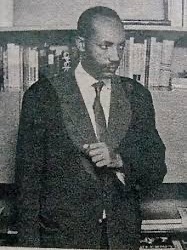
Laureate Tsegaye Gabre-Medhin (August 17, 1936 – February 25, 2006) was an Ethiopian poet and novelist. His novels and poets evoke retrospective narratives, fanciful epics, and nationalistic connotations. He is considered to be one of the most novelists along with Baalu Girma and Haddis Alemayehu, his books were successful in commercial sales and even academic thesis. His works are solely based in Amharic and English.
He was born in Bodaa Village, Ethiopia. He is part Amhara and part Oromo. He learned Ge’ez, the ancient language of the church, which is an Ethiopian equivalent of Latin. He helped the family by caring for cattle. He was still very young when he began to write plays while at the local elementary school. One of those plays, King Dionysus and the Two Brothers, was staged in the presence, among others, of Emperor Haile Selassie.
He attended the prestigious British Council-supported General Wingate school. He attended the Commercial school in Addis Ababa, where he won a scholarship to Blackstone School of Law in Chicago. He traveled to Europe to study experimental drama at the Royal Court Theatre in London and the Comédie-Française in Paris. He devoted himself to managing and developing the Ethiopian National Theater.
He attended the first UNESCO-organised World Festival of Black Arts and the Pan-African Cultural Festival. He was awarded his country’s highest literary honor, the Haile Selassie I Prize for Amharic Literature. The prize earned him the title of Laureate.
He was appointed as vice-minister of culture and sports and was active in setting up the Addis Ababa University Department of Theatre Arts. He wrote an extended, and very poetical, essay “Footprints in Time”, which appeared in large format with photographs. It traced Ethiopian history from the prehistoric time of Lucy, the first-known hominid that had been found in the Afar Desert in eastern Ethiopia.
He remained in close contact with the Ethiopian diaspora. #africanhistory365 #africanexcellence
6 notes
·
View notes
Text
'Andrew Scott’s success did not arrive overnight. His has been a slow and steady ascent from supporting player to leading man. But his status is now assured: at 47, the Irishman is among the most talented and prominent actors of his generation, on stage and screen.
Dublin-born and raised, Scott first took drama classes at the suggestion of his mother, an art teacher, to try to overcome a childhood lisp. At 17 he won his first part in a film, Korea (1995), about an Irish boy who finds himself fighting in the Korean War. By 21, he was winning awards for his performance in Eugene O’Neill’s Long Day’s Journey into Night, for director Karel Reisz, no less, at The Gate. He arrived in London, where he continues to live, at the end of the 1990s, and worked regularly, with smaller parts in bigger TV shows (Band of Brothers, Longitude) and bigger parts in smaller plays (A Girl in a Car With a Man, Dying City). By the mid-2000s he was well established, especially in the theatre. In 2006, on Broadway, he was Julianne Moore’s lover, and Bill Nighy’s son, in David Hare’s Iraq War drama, The Vertical Hour, directed by Sam Mendes. In 2009, he was Ben Whishaw’s betrayed boyfriend in Mike Bartlett’s Cock, at the Royal Court. He won excellent notices for these and other performances, but he was not yet a star. If you knew, you knew. If you didn’t know, you didn’t know. Most of us didn’t know; not yet.
That changed in 2010 when, at the age of 33, he played Jim Moriarty, arch nemesis of Benedict Cumberbatch’s egocentric detective, in the BBC’s smash hit Sherlock. The appearance many remember best is his incendiary debut, in an episode called “The Great Game”. When first we meet him, Moriarty is disguised as a creepy IT geek, a human flinch with an ingratiating smile. It’s an act so convincing that even Sherlock doesn’t catch on. Next time we see him, he’s a dapper psychotic in a Westwood suit, with an uncannily pitched singsong delivery and an air of casual menace that flips, suddenly, into rage so consuming he’s close to tears. Such was the relish with which Scott played the villain — he won a Bafta for it — that he risked the black hat becoming stuck to his head. In Spectre (2015), the fourth of Daniel Craig’s Bond movies, and the second directed by Sam Mendes, Scott played Max Denbigh, or C, a smug Whitehall mandarin who wants to merge MI5 and MI6, sacrilegiously replacing the 00 agents with drones. (If only.)
There were other decent roles in movies and TV series, as well as substantial achievements on stage, and he might have carried on in this way for who knows how long, even for his whole career, as a fêted stage performer who never quite breaks through as a leading man on screen.
But Scott had more to offer than flashy baddies and scene-stealing cameos. His Hamlet, at The Almeida in London, in 2017, was rapturously received. I’ve seen it only on YouTube, but even watching on that degraded format, you can appreciate the fuss. Scott is magnetic: funny, compelling, and so adept with the language that, while you never forget he’s speaking some of the most profound and beautiful verse ever written, it feels as conversational as pub chat.
Another banner year was 2019: a memorable cameo in 1917 (Mendes again) as a laconic English lieutenant; an Emmy nomination for his performance in an episode of Black Mirror; and the matinée idol in Noel Coward’s Present Laughter at London’s Old Vic, for which he won the Olivier for Best Actor, the most prestigious award in British theatre.
The second series of Phoebe Waller-Bridge’s phenomenal Fleabag, also in 2019, proved to a wider public what theatregoers already knew: Scott could play the mainstream romantic lead, and then some. His character was unnamed. The credits read, simply, “The Priest”. But social media and the newspapers interpolated an adjective and Scott became The Hot Priest, Fleabag’s unlucky-in-love interest, a heavy-drinking heartbreaker in a winningly spiffy cassock, and an internet sensation.
Fleabag began as a spiky dramedy about a traumatised young woman. Scott’s storyline saw it develop into a bittersweet rom-com, brimming with compassion for its two clever, funny, horny, lonely, awkward, baggage-carrying heroes, lovers who can’t get together because, for all the snogging in the confessional, one of them is already taken, in this case by God.
It was the best and brightest British comedy of the 2010s, and Scott’s fizzing chemistry with Waller-Bridge had much to do with that. The ending, when she confesses her feelings at a bus stop, is already a classic. “I love you,” she tells him. “It’ll pass,” he says.
Over the past 12 months, in particular, Scott has piled triumph on top of victory, and his star has risen still further. At the National, last year, he executed a coup de théâtre in Vanya, for which he was again nominated for an Olivier. (He lost out to an old Sherlock sparring partner, Mark Gatiss, for his superb turn in The Motive and the Cue, about the making of an earlier Hamlet.) For Simon Stephens’s reworking of Chekhov’s play, Scott was the only actor on stage. On a sparsely furnished set, in modern dress — actually his own clothes: a turquoise short sleeve shirt, pleated chinos, Reebok Classics and a thin gold chain — and with only very slight modulations of his voice and movements, he successfully embodied eight separate people including an ageing professor and his glamorous young wife; an alcoholic doctor and the woman who loves him; and Vanya himself, the hangdog estate manager. He argued with himself, flirted with himself and even, in one indelible moment, had it off with himself.
It’s the kind of thing that could have been indulgent showboating, a drama-school exercise taken too far, more fun for the performer than the audience. But Scott carried it off with brio. In the simplest terms, he can play two people wrestling over a bottle of vodka in the middle of the night — and make you forget that there’s only one of him, and he’s an Irish actor, not a provincial Russian(s). An astonishing feat.
For his next trick: All of Us Strangers, among the very best films released in 2023. Writer-director Andrew Haigh’s ghost story is about Adam (Scott), a lonely writer, isolated in a Ballardian west-London high-rise, who returns to his suburban childhood home to find that his parents — killed in a car crash when he was 11 — are still living there, apparently unaltered since 1987. Meanwhile, Adam begins a tentative romance with a neighbour, Henry (Paul Mescal), a younger man, also lonely, also vulnerable, also cut off from family and friends.
Tender, lyrical, sentimental, sad, strange, and ultimately quite devastating, All of Us Strangers was another potential artistic banana skin. At one point, Scott’s character climbs into bed with his parents and lies between them, as a child might, seeking comfort. In less accomplished hands, this sort of thing could have been exasperating and embarrassing. But Scott’s performance grounds the film. He is exceptionally moving in it. He was nominated for a Golden Globe for Best Actor, losing to his fellow Irishman, Cillian Murphy, for Oppenheimer. Earlier this year, he made history as the first person to receive Critics Circle awards in the same year for Best Actor in a film (All of Us Strangers) and a play (Vanya).
Finally, last month, the title role in Ripley, a new spin on the lurid Patricia Highsmith novels. That show, which unspools over eight episodes on Netflix, was a long time coming. Announced in 2019, it was filmed during the pandemic, at locations across Italy and in New York. Scott is in almost every scene and delivers an immensely subtle and nuanced portrayal of Highsmith’s identity thief, a character previously played by actors including Alain Delon, Dennis Hopper, and Matt Damon in the famous Anthony Minghella film The Talented Mr Ripley, from 1999.
The fragile almost-charm that makes Tom Ripley such an enduring antihero is there in Scott’s portrayal, but so is the creepiness, the isolation, the fear and desperation. His Ripley can turn on a smile, but it quickly curdles. Filmed in high-contrast black and white, Ripley is a sombre, chilly work by design, but doggedly compelling, and not without a mordant wit. Again, critics swooned.
So the actor is on a hot streak. Later this year he’ll appear in Back in Action, a Hollywood spy caper, alongside Cameron Diaz and Jamie Foxx, above-the-title stars with dazzling, wide-screen smiles. But could they play Chekhov single-handed? They’ll need to be on their toes.
Before our shoot and subsequent interview, in April, I had met Scott briefly on two previous occasions, both times at fancy dinners for fashion brands. Compact, stylish, dynamic, he is impishly witty and charismatic: good in a room. Also, obliging: the second time I met him, he took my phone and spoke into it in his most diabolical Moriarty voice for a wickedly funny voice message to my son, a Sherlock fan.
At the Esquire shoot, on an overcast day in south London, Scott again demonstrated his good sportiness: dancing in the drizzle in a Gucci suit; generously sharing his moment in the spotlight with an unexpected co-star, a local cat who sauntered on to the set and decided to stick around for the close-ups; and entertaining the crew — and hangers-on, including me — with rude jokes. At one point, while for some reason discussing the contents of our respective fridges, I asked him where he kept his tomatoes. “Easy, Tiger,” he said.
At lunch the following day, upstairs at Quo Vadis, the restaurant and members’ club in Soho (my suggestion), the actor arrived promptly, settled himself on a banquette, and we got straight to business. It’s standard practice now for interviews published in the Q&A format to include a disclaimer, in the American style: “This conversation has been edited for length and clarity.” (Well, duh.) In this case, we talked for close to three hours. Inevitably, paper costs being what they are, and Esquire readers having busy lives, some of that verbiage has ended up on the cutting-room floor. But not much! I’ve tried to let it flow as much as possible, and to keep the spirit of the thing, in which we toggled, like all good performances, between light and dark, comedy and tragedy.
In early March, a month before this interview took place, Scott and his family suffered a terrible and unexpected loss: his mother, Nora, suddenly died. He went home to Dublin to be with his dad, Jim, his sisters, Sarah and Hannah, and their family and friends.
As an interviewee and, I suspect, as a person, Scott is thoughtful, convivial and solicitous: he doesn’t just answer questions, he also asks them. He is not above the occasional forearm squeeze when he wants to emphasise a point. He seems to possess a sharp emotional intelligence. Perhaps one should expect empathy in a great actor, but in him it seems particularly marked.
Before we began talking, there was some studying of the menu. Scott wondered, since I eat often at Quo Vadis, if I had any recommendations. I told him I had my eye on the pie: chicken, ham and leek. “Why would you not have the pie?” wondered Scott. A good question.
So, how was your morning? Where have you come from?
This morning I’ve been at the gym, Alex.
Are you working out for a specific reason or are you just a healthy man?
Just trying to keep it going. Exercise is so helpful to me. I don’t know if you know, but my mum died four weeks ago.
I did know, and I’m so sorry.
Thank you. So, yeah. Just trying to keep it going. They say your body feels it as much as your mind.
The grief?
Yeah, the grief. My friend said a brilliant thing last night. She’s been through grief. She said, if you think of it like weights, the weight of it doesn’t decrease, but your ability to lift the weights does. So, if you go to the gym and you’re completely unpractised you won’t be able to lift the weight. But the more you get used to it, the more you can lift. There’s a slight analogy to grief. I’m just learning about it.
Have you been through grief before?
Not really. A little bit, but not to this extent. And it’s a strange thing because, obviously, I’m in the middle of having to talk a lot [promoting Ripley] and making that decision of whether to talk about it or whether not to talk about it. I’m finding myself talking about it, because it’s what’s going on, and without giving away too much of it she was such an important figure. It feels right. It’s such a natural thing.
Is it helpful to talk about it?
I think it has to be. I feel very lucky with my job, in the sense that, all those more complex, difficult feelings, that’s what you have to do in a rehearsal room; you have to explore these things. So strange: a lot of the recent work that I’ve done has been exploring grief. With Vanya, and All of Us Strangers. So it’s odd to be experiencing it this time for real.
I wasn’t planning on making that the focal point of this piece, so it’s up to you how much you feel comfortable talking about it.
I appreciate that.
Was it unexpected? Did it happen out of the blue?
Yes. She was very alive four weeks ago. She just deteriorated very quickly. She got pneumonia and she just… it was all over within 24 hours.
What sort of person was she?
She was the most enormously fun person that you could possibly imagine. Insanely fun and very, very creative. She’s the person who sort of introduced me to acting and art. She taught me to draw and paint when I was really young —that’s another big passion of mine, drawing and painting. She was amazing with all of us. My sister Sarah is very talented in sport, she’s now a sports coach. And my sister Hannah was very artistic and she’s an actor now. So, she was really good at supporting us throughout all our different interests. What I say is that we’ve been left a huge fortune by her. Not financially, but an emotional fortune, if you know what I mean? I feel that really strongly. And once this horrible shock is over, I just have to figure out how I’m going to spend it. Because I think when someone else is alive and they’ve got amazing attributes, they look after those attributes. And then when they die, particularly if they are your parent, you feel like you want to inhabit them, these incredible enthusiasts for life. She just made connections with people very easily. I feel enormously grateful to have had her. Have you had much grief in your life?
My mother died, during Covid. She had been ill for a long time, so it was a very different experience to yours. But I think they are all different experiences, for each of us. I don’t know if that loss would be in any way analogous to yours. But like you, I love art and books and music, and that’s all from her. Last night, I watched a rom-com with my daughter, who is 14. And I don’t know if I would like rom-coms so much, if it wasn’t for my mum.
Love a rom-com! What did you watch?
Annie Hall.
Did she like it, your daughter?
She absolutely loved it. She was properly laughing.
Oh, that’s great!
And she’s a tough one to impress. But she loved it, and my mum loved Woody Allen. My mum can’t recommend Woody Allen to my daughter now, but I can, and that’s come down from her. So it goes on.
That’s what I mean. Your spirit doesn’t die. And I’m sure you went to bed going, “Yes!”
I did! It was a lovely evening, it really was. Tonight we’ll watch something else.
Are you going to watch another Woody Allen? Which one are you going to watch?
I thought maybe we’d watch Manhattan? More Diane Keaton.
Or Hannah and Her Sisters? That’s a good one. Insanely good. Yeah, it’s amazing that legacy, what you’re left with. My mum was so good at connecting with people. She was not very good at small talk. She was quite socially bold. She would say things to people. If she thought you looked well, she’d tell you. She’d always come home with some story about some pot thrower she met at some sort of craft fair. Being socially bold, there’s a sort of kindness in it. When someone says something surprising, it’s completely delightful. My mother sent me something when I was going through a bad time in my twenties. It was just a little card. It said, “The greatest failure is not to delight.” What a beautiful quote. And she was just delighted by so many things, and she was also delightful. And like her, I really love people. I really get a kick out of people.
I can tell.
But there’s a kind of thing, if you become recognisable, people become the enemy? And it’s something I have to try and weigh up a little bit. Because people are my favourite thing about the world. I think it’s part of my nature. My dad is pretty sociable too. And so it’s weighing that up, how you keep that going. Because certain parts of that are out of your control: people treat you slightly differently. But this phase, the past four weeks, it still feels so new. Just thinking about legacy and kindness and love and the finite-ness of life. All that stuff.
Big stuff.
Yeah, it’s big stuff. And it’s very interesting, talking about grief. Because it’s not all just low-energy sadness. There’s something galvanising about it as well. I don’t know if you found that, too?
One of the things about someone else dying is it makes you feel alive.
Yes, exactly. Even though we have no choice, it does that. It’s that amazing thing, the year of magical thinking.
[Waiter approaches. Are we ready to order?]
We are.
I think so. Are we two pie guys?
We’re two pie guys!
We’re pretty fly for pie guys.
Are we salad guys? Tomato, fennel and cucumber salad?
Yeah.
And chips, maybe?
Listen, you only live once.
So, the year of magical thinking…
You know, when you’re walking along, are you allowed to have a surge of joy? Or are you allowed to just stay home and… It’s extraordinary when it gets you.
Like a wave of emotion?
I had one on the rowing machine today. I’m glad of it, though.
That was sadness.
Just loss, yeah. Just loss.
So, there’s two ways to do this. You can choose. We can do the usual interview where we start at the beginning with your childhood and go all the way through to now. That’s totally fine. Or, I can throw more random questions at you, and see where that takes us?
Random!
Shall we random it?
Let’s random it.
OK. That means I might sometimes read questions off this piece of paper.
Reading takes just slightly away from the randomness of it, Alex…
That is a very good point. You are quite right. But I don’t read them out in order! They’re just prompts.
[Sardonically] Oh, I see!
Talk me through what you’re wearing.
Oh, this is so old. What does it say?
[I peer at the label on the inside of his shirt collar. It says Hartford.]
What colour would you call that?
I’d call it a bit of a duck egg, Alex, would you?
I’d go with that. And it’s like a…
Like a Henley?
And these [pointing to trousers]?
Mr P trousers. And a pair of old Nikes.
And sports socks.
When I am off duty, I think I dress slightly like an 11-year-old. You know, when you’re just plodding the streets, I wear, like, a hoodie and trainers.
And you have a chain round your neck.
This is a chain that I bought in New York. No, maybe I bought it in Italy. It was a replacement chain. I’ve worn a chain for years. Sometimes I like to have it as a reminder that I’m not working. When you’re in character, you take it off. Because when you’re in a show or a play, they sort of own you. They own your hair.
They own your hair!
Or sometimes you have to walk around with, like, a stupid moustache. Or, worse, chops. Actors fucking hate that. Like, nobody suits that, I don’t think. Right? I’m trying to think of someone who suits that.
Daniel Day Lewis, maybe? He can carry it off.
He’s got the chops for chops!
What’s something about you that you think is typically Irish?
It goes back to that people thing. When I go home to Ireland, I’m aware that people talk to each other a lot more. And I think there’s a sense of humour that Irish people have that I love. And I suppose a softness, too, that I love. Those are the positive things. And then the guilt and the shame is the negative stuff.
Catholic guilt?
Catholic guilt. I feel very strongly, though, that I’ve worked to emancipate myself from it. There’s a certain unthinking-ness to guilt. Your first thought, always: “What have I done wrong? It’s gotta be me.” That doesn’t benefit anyone. And with shame, I don’t feel shame anymore. I think I probably did before. But in a way, it’s an irrelevant thing for me to talk about now. The thing I prefer to talk about is how great it is not to have that anymore. Rather than how horrible it was. The thing I feel enthusiastic about is how there are so many beautiful and different ways to live a life that aren’t centred on the very strict, Catholic, cultural idea of what a good life might be. Namely, 2.4 children and certain ideas and a very specific life.
Are there positives to be taken away from a Catholic education?
The rituals around grief, I think, are really beautiful, having gone through what I’ve just been going through. And the community that you get in Catholicism. Because that’s what Catholicism is about, in some ways: devotion to your community. The amount of love and support you get is to be admired. It’s the organisation that has been the problem, not the values. Random question number 16!
When’s the last time you were horrifically drunk?
Good question! I was in New York doing press recently for Ripley. And I met Paul Mescal. He had a negroni waiting for me. Love a negroni. And then we went dancing.
Are you a good dancer?
I’m pretty good, freestyle. Slow on choreography but once I get it, I’m OK. I love dancing.
I love dancing.
Do you really? Do you do, like, choreographed dancing as well?
No! But I’m a good dancer.
Do you have moves?
Oh, I have moves.
Ha! I love that!
It’s so freeing, so liberating.
It totally is.
And it’s sexy and fun.
Exactly! It’ll get you a kiss at the end of the night.
It’s sort of showing off, too, isn’t it?
But it’s also completely communal. It connects you with people. Also, you can learn so much about someone by watching how they connect with people on a dance floor. How much of communication do they say is non-verbal? An enormous amount.
If you didn’t live in London, where would you most like to live?
I suppose Dublin. I do live a wee bit in Dublin. But one of the things I feel really grateful for is that I have sort of been able to live all over the place. I lived in Italy for a year, during the pandemic.
You were making Ripley?
Yeah, we were all over. Rome, Venice, Capri, Naples… A bit of New York. I’d love to spend more time in New York. I was very lucky recently to have my picture taken by Annie Leibovitz. We were outside the Chelsea Hotel, and this woman came up. [Thick Noo Yawk accent, shouting]: “Hey, Annie! Why don’t you take a picture of this dumpster? It’s been outside my block for two months! Take a picture of that!” There’s something about that New York-iness that I love. It still has such romance for me.
How old do you feel?
Really young. I don’t have an exact age for you. Thirties?
Some people feel in touch with their childhood selves, or almost unchanged from adolescence. Others seem to have been born an adult.
That’s really true. I think of playgrounds for children: you’re actively encouraged to play, as a kid. “Go out and play!” And I hate that at some point, maybe in your mid-twenties, someone goes, “Now, don’t play! Now, know everything. Now, turn on the television, acquire a mortgage and tell people what you know.” I have to play for a living. It’s so important, not just in your job, but in life. It’s a great pleasure of life, if you can hold on to that. Talking about my mum again, she had an amazing sense of fun.
She was a funny person? She made people laugh?
Absolutely.
That’s important, isn’t it?
It’s really important. I think having a sense of humour is one of the most important things in life. It’s such a tool. And you can develop it. My family were all funny. Laughter was a currency in our family. Humour is a magic weapon. It separates us from the other species. Like, I love my dog. I think dogs are amazing. And he can have fun, but he’s not able to go, “This is fucking ridiculous.” He’s not able to do that! So it’s a real signifier of your humanity, in some ways.
Also, being a funny person, or someone who can connect with people through humour, that’s how we make friends.
I think actors make really good friends. Because you’re in the empathy game. And because you’re making the decision to go into an industry that is really tough, you need to have your priorities straight: “I know this is tough, I know the chances of me succeeding in it are slim, but I’m going to go in anyway.” It shows a sort of self-possession that I think is a wonderful thing to have in a friend. Also, actors are just funny. And a lot of them are sexy!
Funny and sexy: good combination.
I know! Not that you want all your friends to be sexy, that’s not how you should choose your friends.
Oh, I don’t know. It’s not the worst idea.
It’s not. But I think it’s something to do with empathy. And it’s a troupe mentality as well. You’re good in groups.
It’s a gang.
I love a gang. Do you like a gang?
I do. Magazines are like that. A good magazine is a team, a great magazine is a gang. And the thing we produce is only part of it: you put it out there and people make of it what they will. The process of making it is the thing, for me.
Oh, my God. That’s something I feel more and more. Process is as important as product. I really believe that. You can have an extraordinary product, but if it was an absolute nightmare to make then, ultimately, that’s what you’re going to remember about it. You make good things that are successful that everybody loves? That’s lovely. But also, you make stuff that people don’t respond to. So, if you have a good time in the process, and the attempt is a valiant one, and there’s a good atmosphere, if it’s kind and fun, that’s the stuff you hold on to. One of the reasons I love the theatre is you don’t have to see the product. You just do it, and then it’s done. It’s an art form that is ephemeral. There’s a big liberation, too, in discovering you don’t have to watch any of your films if you don’t want to.
Have you watched Ripley?
I watched Ripley once.
And?
It’s a lot of me in it! Jesus!
Is that a problem?
I find it hard to watch myself. I do. There’s something quite stressful about looking at yourself. Have you ever heard yourself on someone’s answering machine? Horrific! You’re like, “Oh, my God, that can’t be me. How do they let me out in the day?” It’s like that, and then it’s your big, stupid face as well. Mostly, I have a feeling of overwhelming embarrassment.
On a cinema screen, I can’t even imagine. Your face the size of a house!
The size of a house, and there’s 400 people watching you.
Nature did not intend humans to ever experience this.
That is so true. It’s not natural.
I mean, even mirrors are to be avoided.
Maybe looking in the sea is the only natural way?
Well, Narcissus!
Yeah, true. That didn’t turn out well. I’d love for that to be a tagline for a movie, though: “Nature did not intend humans to ever experience this…”
But equally, nature didn’t intend the rest of us to gaze upon you in quite that way. We sit in the dark, staring up worshipfully at this giant image of you projected on a screen for hours. Is that healthy?
Without talking about the purity of theatre again, when you’re in the theatre, you, as the audience, see someone walking on the stage, and technically you could go up there, too. There’s not that remove. It’s live. There’s a real intimacy. That’s why I feel it’s the real actor’s medium. Your job is to create an atmosphere. I always find it insanely moving, even still, that adults go into the dark and say, “I know this is fake, but I don’t care: tell me a story.” And they gasp, and they cry, or they’re rolling around the aisles laughing. It’s so extraordinary, so wonderful that it exists. I really do believe in the arts as a human need. I believe in it so deeply. During the pandemic, our first question to each other was, “What are you watching? What book are you reading?” Just to get through it, to survive. It’s not just some sort of frivolous thing. It’s a necessity. As human beings, we tell stories. Expert storytellers are really vital. No, it’s not brain surgery. But, “Hearts starve as well as bodies. Give us bread, but give us roses.” I love that quote.
Tell me about playing Hamlet. Was it what you expected it would be?
It’s extraordinary. Loads of different reasons why. From an acting point of view, there’s no part of you that isn’t being used. So you have to, first of all, have enormous physical stamina, because it’s nearly four hours long. Our version was three hours, 50 minutes. And you have to be a comedian, you have to be a soldier, you have to be a prince, you have to be the romantic hero, you have to be the sorrowful son, you have to understand the rhythm of the language, you have to be able to hit the back of the auditorium — there are just so many things about it that require all those muscles to be exercised. You know, it’s so funny that we’re talking about this today. Because at the beginning of Hamlet, it’s two months since his dad died. His mother has already remarried, to his uncle! What are they doing? I mean the idea that next month my dad might marry someone else is so extraordinary! So, Hamlet’s not mad. Of course he would wear black clothes and be a bit moody. The more interesting question [than whether or not Hamlet is mad] is, who was he before? I think he’s incredibly funny. It’s a really funny play, Hamlet. And it’s a funny play that deals in life and death: the undiscovered country from which no traveller returns. It’s about what it is to be human. And what it’s like to be human is funny, and sad. The language is so incredibly beautiful and it’s also incredibly actable. And it’s also a thriller.
And a ghost story. It’s supernatural.
It’s a supernatural ghost story. And because the character is so well-rounded, I always think of it like a vessel into which you can pour any actor or actress. So, your version, the bits you would respond to if you were playing Hamlet, would be completely different to mine or anyone else’s. It can embrace so many kinds of actors. So Richard Burton can play it or Ben Whishaw can play it or Ruth Negga can play it or I can play it, and it’s going to bring out completely different sides. Did you do much Shakespeare at school?
I did. I studied Hamlet.
I remember Mark Rylance said…
[The waiter arrives with our pies and we both take a moment to admire them before breaking the crusts… The following passages are occasionally hard to make out due to enthusiastic chewing.]
You were about to say something about Mark Rylance. I saw his Hamlet in… must have been 1989, when I was doing my A-levels. He did it in his pyjamas.
I’ve heard. He came to see [my] Hamlet. He said, you feel like you’re on a level with it, and then in week four, you plummet through the layers of the floor and you’re on a deeper level. He was exactly right. Something happens. It’s just got depth.
Does it change you? Do you learn something new about yourself, as an actor?
I think because it’s such a tall order for an actor, it’s sort of like you feel you can do anything after that. Like, at least this is not as hard as Hamlet. You know you have those muscles now. We transferred it from The Almeida on to the West End. So, we did it loads of times. That’s a big achievement.
How many times did you play him?
One hundred and fifty. Twice on a Wednesday, twice on a Saturday. Eight hours [on those days]. Even just for your voice, it’s a lot.
We keep coming back to theatre. Is that because you prefer it?
It goes directly into your veins. It’s pure. You start at the beginning of the story and you go through to the end. When you’re making a movie, it’s a different process. Your imagination is constantly interrupted. You do something for two minutes and then someone comes in and goes, “OK, now we’re going to do Alex’s close-up, so you go back to your trailer and we’re going to set up all the lights and make sure that window across the street is properly lit.” And that’s another 20 minutes, and then you try to get back into the conversation we’ve just been having… And so the impetus is a different one.
The Hot Priest…
What’s that?
Ha! I watched Fleabag again, last week. It’s so good. But The Hot Priest, he’s a coward. He gets a chance at happiness with the love of his life and he doesn’t take it.
Well, not to judge my character, but I suppose there’s an argument that he does choose love. He chooses God. That’s the great love of his life. Whatever his spirituality has given him, he has to choose that. Is there a way that they could have made that [relationship] work? Of course there is. We’re seeing it from Fleabag’s point of view, literally, so of course it feels awful [that Fleabag and the Priest can’t be together]. But I think we understand it, the thing that is not often represented on screen but which an awful lot of people have, which is the experience of having a massive connection with somebody, a real love, that doesn’t last forever. I think somebody watching that can think, “I have my version of that. And I know that I loved that person, but I also know why we couldn’t be together.” And that doesn’t mean those relationships are any less significant. It just means that they are impossible to make work on a practical level. Not all love stories end the same way.
Annie Hall.
There you go! La La Land. Love that movie.
The Hot Priest is damaged. There’s a darkness there. Journalists interviewing actors look at the body of work and try to find through lines that we can use to create a narrative. It’s often a false narrative, I know that. However, that’s what we’re here for! Let’s take Hamlet, and the Priest, and Adam from All of Us Strangers, and, I guess, Vanya himself, even Moriarty. These are not happy-go-lucky guys. Ripley! These men seem lost, lonely, sad. Is it ridiculous to suggest that there’s something in you that draws you to these characters — or is it a coincidence?
That’s a really good question. I think it can’t be a coincidence. Like, even when you said “happy-go-lucky”, right? My immediate instinct is to say, “Show me this happy-go-lucky person.” With a different prism on this person, there would be a part of him that’s not happy-go-lucky, because that’s the way human beings are. If we could think now of a part that’s the opposite of the kind of part [he typically plays], a happy-go-lucky character…
How about the kinds of roles that Hugh Grant plays in those rom-coms? Yeah, the character might be a little bit repressed, a bit awkward at first, but basically everything’s cool, then he meets a beautiful woman, it doesn’t work out for about five minutes, and then it does. The end.
[Chuckles] OK, yeah. I’d love to have a go at that.
Wouldn’t you like to do that?
I would! I really would.
Why haven’t you?
I don’t know! It’s weird. That is something I would really love to do. Because I love those films. There’s a joy to them. It’s something I would love to embrace now. When I was growing up, as a young actor, I did want to play the darkness. With Moriarty, I was like, “I’ve got this in me and I’d like to express it.” And, conversely, now I think the opposite. I know that’s a little bit ironic, given I’ve just played Tom Ripley. Ha! But I have just played it, and I have spent a lot of time in characters that are isolated. And I was in a play [Vanya] that was one person. I don’t feel sad doing those things. It’s cathartic. But I would love the idea of doing something different.
Also, you don’t strike me as a person who is especially morose.
No! No, no, no. I’m not. But again, we all contain multitudes. My mother’s legacy was so joyful. Not that she didn’t have her soulful moments, because of course she did. I mean this as the opposite of morbidity, but it doesn’t end well for any of us, it really doesn’t. So bathing in the murkier waters, it’s wonderful to be able to explore that side of you, but also the opposite is true, the idea of joy and fun and lightness is something I’m definitely interested in. Like a musical! I’d love to be in a musical. I’ve just done a cameo in a comedy that I can’t talk about yet. It was just a day, with someone I really love, and it just lifted me up. But of course, there’s the stuff that people associate you with, and that’s what brings you to the table.
You played a baddie really well, so you get more baddies.
Yeah. You have to be quite ferocious about that. You have to go, “Oh, wow, that really is a great film-maker, that’s a lovely opportunity…” But how much time do you have left and what do you want to put out to the world? I feel like I want to be able to manifest what I have within me now. That’s a wonderful thing to be able to do. It’s such a privilege. And I feel so grateful for the opportunities I’ve been given. But why not get out of the hay barn and play in the hay?
Ripley has been well received. Do you read reviews?
I read some of them.
Why?
I’m interested in the audience. You know when people say, “You should never care about what other people think?” Of course I care what people think.
Ripley is excellent, but it’s quite gruelling to watch. Was it gruelling to make?
Yeah.
Because you have to inhabit this deeply unhappy person?
Maybe not unhappy. But very isolated, I think that’s key. It was hard. There was a huge amount of actual acting. Doing 12-hour days for almost a year. I’m not necessarily convinced you should act that much.
Ripley is himself an actor. He puts on other people’s identities because he doesn’t like his own. He doesn’t like himself. Some people think actors are people who don’t like themselves so you pretend to be other people, assume other identities. Or maybe it’s that actors are hollow shells. When you’re not acting, there’s no one there. No you. Sorry to be rude.
No, it’s not rude at all. I totally understand it. But I find it to be completely the opposite of what I’ve learnt. The essence of acting, for me, the great catharsis of it, is that you’re not pretending to be somebody else, you’re exploring different sides of yourself. You’re going, who would I be in these circumstances? Some of the darkest, most unhappy people I know are the people who say, “I don’t have an angry bone in my body.” Then why do I feel so tense around you? People who have no anger… I remember I used to have it with some religious people when I was growing up. People proclaiming that they’re happy or good or kind, that does not necessarily mean that they are happy or good or kind. That’s the brand they’re selling. I’ve always liked that expression: “fame is the mask that eats into the face.” How do you keep a healthy life when you’re pretending to be other people? You do it by going, “I’m going to admit I have a dark side.” It’s much healthier to shout at a fictional character in a swimming pool [as Moriarty does in Sherlock] than it is to be rude to a waiter in a restaurant, in real life.
You find that therapeutic?
Yes, you’re still expressing that anger. I think it is therapeutic.
So playing Tom Ripley every day for a year, were you able to exorcise something, or work through something?
Well, that’s why I found Tom Ripley quite difficult. He’s hard to know, and a harder character to love. If you think of Adam in All of Us Strangers, you go, “OK, I understand what your pain is.” What I understand with Tom, the essence of that character, is that he’s somebody who has a big chasm that is unknowable, perhaps even to himself. We’re all a little bit like that, we’re all sometimes mysterious to ourselves — “I don’t know why I did that…” — but to have empathy for someone like that is difficult. You know the boy in your class who gets bullied, and it’s awful, and you try and understand it but he doesn’t make it easier for himself? That’s the way I feel about Tom Ripley. It’s a thorny relationship. Your first job as an actor is to advocate for the character. That’s why I hate him being described as a psychopath. Everyone else can say what they like about him, but I have to be like, ‘Maybe he’s just… hangry?’ So you have to try and empathise, try and understand. When we call people who do terrible things monsters — “This evil monster!” — I think that’s a way of absenting yourself from that darkness. Because it’s not a monster. It’s a human being that did this. You can’t look away from the fact that human beings, sometimes for completely unknowable reasons, do terrible things. And that’s why it’s interesting when people talk about Tom Ripley. They say, “Have you ever met a Tom Ripley type?” The reason the character is so enduring is because there’s Tom Ripley in all of us. That’s why we kind of want him to get away with it. That’s [Highsmith’s] singular achievement, I think.
I find reading the Ripley books quite unpleasant. It’s a world I really don’t want to spend any time in. I read two of them preparing for this. She’s a great writer, but they’re horrible characters; it’s a depressing world.
I agree. That’s what I found most challenging. Where is the beating heart here? How much time do I want to spend here? And when you do, well, it took its toll. It did make me question how much time I want to spend with that character, absolutely. That’s the truth.
The way you play him, he’s very controlled. You didn’t play him big.
I think it’s important to offer up difference facets of the character to the director and he chooses the ones he feels marry to his vision. And those are the ones [Steven Zaillian] chose. And he executed those expertly.
Are you a member of any clubs?
Yeah, I’m a member of the Mile High Club. No, no…
That’ll do nicely.
OK, that’s my answer.
What’s your earliest memory?
Do they still have, I think it’s called a play pen?
Sort of like tiny little jails for toddlers? What a good idea they were!
I remember being massively happy in it. My mother used to say she just used to fling me in that thing and give me random kitchen utensils. I don’t know, like a spoon. I’ve always been quite good in my own company. I really remember being left to my own imagination and being very happy.
Do you live alone now?
Yeah.
Is that not lonely?
Of course I’ve experienced that but, ultimately, no. I don’t know if that’s the way I’m going to be for the rest of my life. But I certainly don’t feel lonely. I’ve got so much love in my life.
Would it be OK if you lived alone for the rest of your life?
Yeah. It would be OK. One of my great heroes is Esther Perel.
I don’t know who that is.
Esther Perel. She’s a sort of love and relationships expert, a therapist, and she’s a writer. A real hero, I think you’d really dig her. She talks about relationships and the mythology around them. The difference between safety and freedom. She talks with real compassion about both men and women; she talks about this idea of what we think we want, and what we really want. And how there’s only one prototype for a successful life, really, or a successful relationship. Which is: you meet somebody, da-da-da, you fall in love, da-da-da, you have kids, da-da-da. And that prototype just can’t suit every person in the world. There are some people who live in the world who might see their partner every second Tuesday and that suits them. And to be able to understand and communicate your own preference at any given time is really the aim. To be able to say, “At the moment I’m happy in the way I am, but maybe at some point…” I’ve lived with people before, and maybe I will again, but at the moment it feels right to sort of keep it fluid.
The difficulty, of course, with relationships, is there’s another person with their own preferences. Maybe you’re OK with every second Tuesday, but they need Thursdays and Fridays, too…
But isn’t that the beauty of love? That you construct something, like a blanket. You stitch all these things together. One of the things about being gay and having a life that ultimately is slightly different from the majority of people’s, is you learn that you can create your own way of living, that is different and wonderful. A homosexual relationship doesn’t necessarily have to ape what a heterosexual relationship is. That’s a very important thing to acknowledge. I mean, of course, if you want to do that, that’s brilliant. But you don’t have to. To me, the worst thing is to be dishonest or uncommunicative or unhappy or joyless in a relationship. It’s much more important to be able to have a difficult conversation or a brave conversation about how you feel or what you want. So many of my gay friends, I feel very proud of them, really admiring of the fact we have these conversations. It seems very adult and very loving to be able to acknowledge that the difference between safety and freedom can be real torture for some people. How do I love somebody, and still keep my own sense of autonomy and adventure? That’s a real problem. That’s what Esther Perel says. It’s one of the biggest causes of the demise of a relationship. That people coast along, they can’t have that conversation, and then the whole bottom falls out of the boat.
I wasn’t necessarily going to ask you about being gay. One tries to avoid labelling you as “gay actor Andrew Scott” instead of “actor Andrew Scott, who happens to be gay”. But since we’re talking about it already: because you’re famous, you become a de facto spokesperson for gay people. People look to you for the “gay opinion.” Are you OK with that?
I’ll tell you my thoughts on that. If I talk about it in every interview, it sounds like I want to talk about it in every interview. And, of course, I’m asked about it in most interviews, so I’m going to answer it because I’m not ashamed of it. But sometimes I think the more progressive thing to do is what you’re saying: to not talk about it and hopefully for people to realise that if you had to go into work every single day and they said, “Hey, Alex! Still straight? How’s that going?”… I mean, being gay is not even particularly interesting, any more than being straight is. But I understand, and I’m happy to talk about it. I suppose it depends on the scenario. I just don’t want to ever give the impression that it isn’t a source of huge joy in my life. And at this stage in my life, rather than talk about how painful it might have been or the shame, or not getting cast in things [because of it], actually, I’m so proud of the fact that I’m able to play all these different parts and, hopefully, in some ways it demystifies it and makes people — not just gay people, but all people — go, “Oh, yeah, that’s great that it’s represented in the world, but being gay is not your number-one attribute.” The problem is it becomes your schtick. Frankly, I feel like I’ve got just a bit more to offer than that.
Two reasons I think you get asked about being gay. One is just prurience — you’re famous and we want to know who you’re shagging — and the other is that identity politics is such an obsession, and so polarising, and we hope you’ll say something controversial.
I think that’s right, I think that’s what it is. But sometimes people think there’s just one answer, in 15 characters or less. That’s something I resist, slightly.
All of Us Strangers is about loads of things, about grief, love, loneliness, but it’s also very specifically about being gay. To me, anyway.
Yes, it is.
I thought, in particular, that the scene with Claire Foy, where your character comes out to his mother, was incredibly moving.
Isn’t it extraordinary, though, that you, who is not a gay person, could find that so moving? There’s no way you’d find that moving if it was only about being gay. I always say that coming out has nothing to do with sex. When you’re talking to your parent, you’re not thinking, “Oh, this is making me feel a bit frisky.” Anyone can understand that this is about somebody who has something within them — in this case, it’s about sexuality — that he hopes is not going to be the reason that his parents don’t speak to him anymore. And I think we all have that: “I hope you still love me.” And the great pleasure about All of Us Strangers is that it’s reached not just a particular type of audience, but all types of people. And I love they’re able to market it to everyone. Usually they do this weird thing where they pretend the film’s not gay…
Right. There would be a picture of a woman on the poster.
Exactly. Someone who’s playing the neighbour! But now you’re able to market a film with Paul [Mescal] and I, and the fact is that that’s going to sell tickets. I know there’s a long way to go, but that is progression. Before, that wasn’t the case. This time, no one gave a fuck. Nothing bad happened. The world didn’t explode. Family didn’t collapse.
Identity politics question: there’s an opinion now frequently expressed that gay people ought to be played by gay actors, and so on. What are your thoughts on that?
The way I look at it, if somebody was to make a film about my life — it’d be quite a weird film — would I want only gay actors to be auditioned to play me? I would say that I’m more than my sexuality. But there might be another gay person who feels that’s incredibly important to who they are and how they would like to be represented on film. How do we balance that? I don’t know. I don’t have an easy answer on that. I think it’s a case-by-case thing.
You’ve played straight people and gay people. You’re Irish but you’ve played English people and American people. I would hope you would be able to continue doing that.
The question I suppose is opportunity, and who gets it. It was very frustrating to me, when I was growing up, that there were no gay actors.
Well, there were lots of gay actors…
But not “out” gay actors. Now there are more. Representation is so important. So I think it’s complicated, and nuanced. And talking about it in a general way rather than a specific way is not always helpful. It depends which film we are talking about. Which actor.
You were spared the curse of instant mega-fame, aged 22. Would you have handled that well?
No. I think all that scrutiny and opinion, it’s a lot. Now I’m able to look at a bad review or somebody saying something really horrible about the way I look, or even someone saying really nice things about that, and go [shrugs]. Before, when that happened, it was devastating. But I survived and it was fine, and I got another job and I was able to kiss someone at a disco, so… Whereas if you’re 22 and you don’t have that experience behind you, you go, “Oh, my God. This is horrible, what do I do?” And also, there’s much more scrutiny now, so much more. I think that must be really hard. Social media is a crazy thing, isn’t it?
I think it’s a horrible thing, on the whole.
That thing you were saying about cinema, about how it’s not natural to see yourself, or other people like that… The amount of information that we’re supposed to absorb and process? Wow. You wake up in the morning and you’re already looking at it.
They used to say that the fame of TV actors was of a different order because they are in your home. People felt they knew the stars of Coronation Street in a much more intimate way, while movie stars, Cary Grant or whoever, these were much more remote, almost mythical creatures. People who are famous on Instagram or TikTok are in the palm of your hand talking to you all day.
And it’s so interesting what people on social media choose to tell you about their lives, even when nobody’s asking them any questions. Like, is that person insane? It’s a very dangerous thing. I find it troubling.
Do you think things are getting better or are they getting worse?
That’s such a good question. I have to believe they’re getting better. I don’t know what that says about me.
It says you’re an optimist.
I think I am an optimist.
What’s the weirdest thing you’ve ever put in your mouth?
Fucking hell. Do you know what I don’t like? Any food that you don’t have to put any effort into eating.
Give me an example.
Custard.
Yes!
I don’t mind ice cream, because it’s got a bit of texture. But I don’t like mashed potato. I don’t like creamed potatoes, or creamed anything.
Risotto?
Absolutely borderline. So if it’s got a little bite to it, it’s OK. But baby food. Ugh! Makes me feel a bit sick.
What’s your favourite of your own body parts?
Ahahah! What do I like? What have we got? I don’t mind my nose? My eyes are OK. Like, my eyes are definitely expressive, God knows. Fucking hell. I remember I was in rehearsal once, and the director said, “Andrew, I just don’t know what you’re thinking.” And the whole company started to laugh. They were like “You don’t? What the fuck is wrong with you?” Because I think I’ve got quite a readable face.
Which is a tool for an actor, right?
It can be a tool for an actor. But you have to learn what your face does, as an actor. On film, your thoughts really are picked up.
What’s your favourite body part that belongs to someone else?
I like hands. And I like teeth. Someone with a nice smile.
Are you similar to your dad?
Yeah, I am. He’s pretty soft-natured, which I think I am, to a degree. He likes fun, too. And he likes people. He’s good at talking to people. He’s kind of sensitive, emotional. He’s a lovely man, a very dutiful dad to us, very loyal.
Would you miss the attention if your fame disappeared overnight?
I definitely think I would miss an audience, if that’s what you mean. The ability to tell a story in front of an audience, I’d miss that. Not to have that outlet.
Before you got famous, you were having a pretty decent career, working with good people, getting interesting parts. Would it have been OK to just carry on being that guy, under the radar?
Oh, my God, yes. Absolutely.
Would you have preferred that to the fame?
The thing is, what it affords you is the opportunity to be cast in really good stuff. You get better roles, particularly on screen. And I’m quite lucky. I have a manageable amount of fame, for the most part.
Some people are born for fame. They love it. They’re flowers to the sun. Others should never have become famous. They can’t handle it. You’ve found you’re OK with it.
Do you know what I feel? I feel, if I was in something I didn’t like, if I was getting lots of attention for something I didn’t feel was representative of me, I think I’d feel quite differently. I feel very relaxed, doing this interview with you today. I feel like, whatever you’re going to ask me, I would feel self-possessed enough to say, “Alex, do you mind if we don’t talk about that?”
Shall we leave it there, then?
Thank you. That was lovely.'
#Andrew Scott#Jim Moriarty#Sherlock#Nora Scott#Hamlet#All of Us Strangers#Paul Mescal#Ripley#Negroni#A Girl in a Car with a Man#Longitude#Band of Brothers#Korea#Long Day's Journey Into Night#Reading about Andrew's mum has me SO emotional#I just want to give him the BIGGEST hug#I love that a cat just randomly decided to join in the shoot#Almeida Theatre#Dying City#Broadway#The Vertical Hour#Bill Nighy#Julianne Moore#Ben Whishaw#Benedict Cumberbatch#'The Great Game'#Sam Mendes#Spectre#Max Denbigh#Annie Leibovitz
9 notes
·
View notes
Text
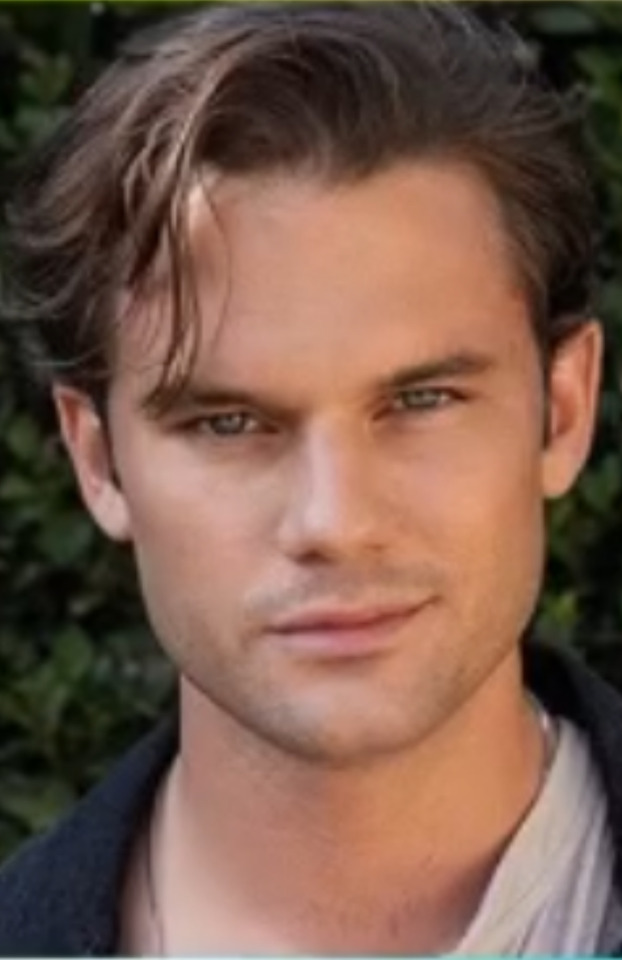
JEREMY IRVINE IS HENRY BEAUCHAMP
Always like him. What a super start in War Horse very versatile actor.
Jeremy Irvine is an English stage and screen actor. He was born Jeremy William Fredric Smith in Gamlingay, Cambridgeshire, England. He attended drama school at the London Academy of Music and Dramatic Art before catching Hollywood's eye starring in Steven Spielberg's 2011 epic war film "War Horse." In 2012, Irvine portrayed Philip "Pip" Pirrip in the film adaptation of Charles Dickens's 1861 novel of the same name Great Expectations.
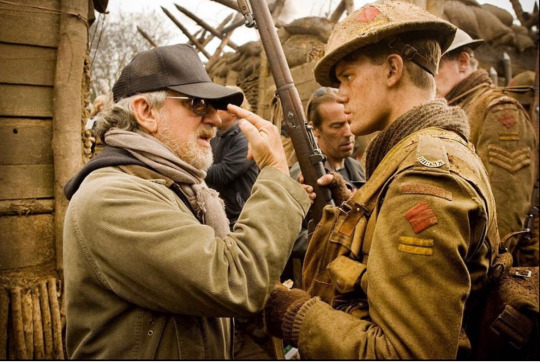
Have you seen this movie? 🎥
War Horse (2011) Young Albert is enlisted in the army to join the First World War after his beloved horse was sold to cavalry. Albert's hopeful journey takes him outside of Britain and into the front lines as the war rages on.
For his work in the film, he was nominated for the London Film Critics' Choice Award for Young British Performer Of The Year and Empire Award for Best Male Newcomer.
youtube
In 2013 Jeremy Irvine starred alongside Colin Firth in The Railway Man, an adaptation of the 1995 autobiography of the same name by Eric Lomax. The Railway Man is a war film directed by Jonathan Teplitzky, and stars Colin Firth, Nicole Kidman, Jeremy Irvine, and Stellan Skarsgård.

Colin Firth and Jeremy Irvine playing the young and old versions of Eric Lomax in The Railway Man
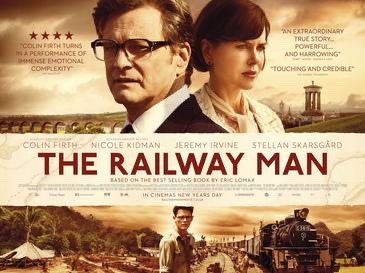
Jeremy has starred in The Woman in Black: Angel of Death (2015), and portrayed Daniel Grigori in Fallen (2016). Irvine earned widespread critical acclaim for his role opposite Dakota Fanning in the independent film "Now Is Good," leading critics to list him among Hollywood's fastest-rising stars.

Daniel Grigori
He played Daniel Grigori the male protagonist of the Fallen series. He is a fallen angel and Luce's boyfriend. He was known as the sixth angel in Heaven, the Angel of Lost Souls and The Watchers which was named Grigori.
In 2018, Irvine portrayed the younger version of Sam Carmichael (Pierce Brosnan) in the sequel to Mamma Mia!, Mamma Mia! Here We Go Again.
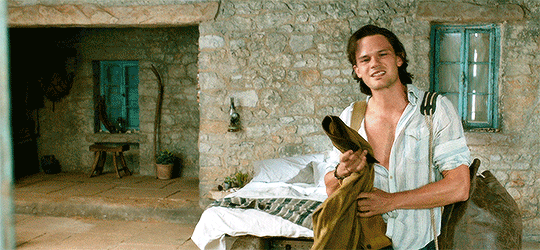
In July 2017, Irvine confirmed via his Instagram that he had joined the cast of The Last Full Measure alongside Tommy Hatto and Zach Roerig, launched in 2019.
youtube
In 2021 Jeremy Irvine was in the war drama biopic ‘Benediction’ (written and directed by Terence Davies) is a lyrical and elegant period piece. It reintroduces the world to the poetic genius of Siegfried Sassoon (Jack Lowden) a decorated war veteran hero, and a dreamer.
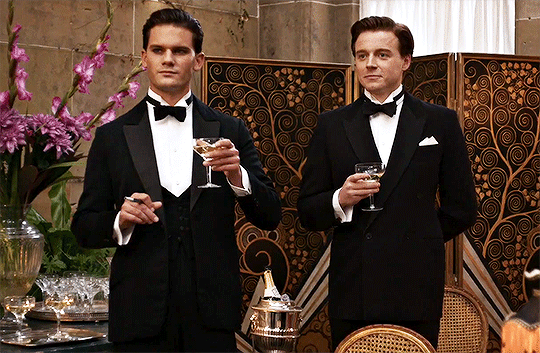
He played Ivor Novello (on the left), was one of the many post-war lovers of Siegfried Sassoon, played by Jack Lowden (right).
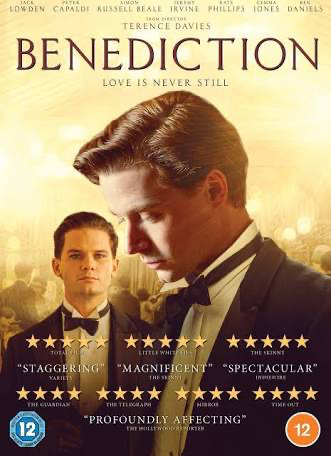
As for his résumé, Jeremy Irvine has brilliant performances in theatre, on the big screen and television. So it was a good choice because he will not disappoint with his performance in “Blood Of My Blood”. So, SH the clock is ticking. ⏰
#jeremyirvine #bloodofmyblood #actor #henrybeauchamp #warhorse #stevenspielberg
15 notes
·
View notes
Text
New Jodie interview. Please someone drop the name of her pup.
It's behind a paywall, so if you want to read it, it's below the cut!
It was a gamble that few actresses would have dared to take. After four years making her name as the charismatic psychopath Villanelle in Killing Eve, Jodie Comer rolled the dice — and changed her life.
Having not acted on stage since she was 16, Comer risked her growing reputation to star in a one-woman show in the West End. Prima Facie proved a sensation and transferred to Broadway. And last year the Liverpudlian won the most prestigious theatre awards on both sides of the Pond — an Olivier and a Tony — and, aged 30, entered a new era. The Com-era, perhaps?
Today she is a fully fledged film star, taking her first leading role in The End We Start From — a smart, bold post-apocalyptic indie drama about a mother (Comer) and her baby (not Comer’s baby). The film already has nine nominations for the British Independent Film awards, and Baftas should follow.
Comer is in a car with a lively dog when we talk via Zoom. She is in a black hoodie, with her long blonde hair loosely tied, and seems extraordinarily calm — except when the dog leaps across the screen. Her Zen is worth mentioning because the last time I saw her was when she prowled the stage with fear and fury in Prima Facie, playing a barrister who defends men accused of sexual assault before she is sexually assaulted herself. One woman going full throttle in defence of all women.
“My sleep was all over the place,” Comer says of her stint playing Tessa. “It’s tricky when you do something emotional. You think, ‘OK, it’s not real.’ But there is some part that tricks your body into believing that what you’re saying and feeling is a real experience. It becomes important to take care of yourself. With theatre it’s kinetic. You’re sharing space with 900 people.
“It’s … it’s tough. But clearly something I love putting myself through.” She pauses. “Yeah, I underestimated Prima Facie. Totally. I just didn’t know what to expect.”
It was not her first ordeal either. She’s drawn to gruelling roles, from Ridley Scott’s The Last Duel, in which her character, Marguerite de Carrouges, was the victim of a rape, to Help, the bleak Channel 4 care home Covid drama. There was also Free Guy, a video-games blockbuster with Ryan Reynolds, but when I ask if Comer is tempted to pick something else fun as a break from Prima Facie, she explains that having a laugh is not enough.
“I like to be in a difficult place,” she says. “A place of self-discovery. Where I feel challenged. With Free Guy that part of me that comes away from my work feeling that I had to dig deep was missing … I came away thinking, ‘Wow, I’ve had so much fun.’ And that should be enough. But I like anything that holds a mirror up to this human experience. It’s just what I’m drawn to.”
Which leads us to The End We Start From. The film is directed by Mahalia Belo and takes place in modern-day London, telling the tale of Mother (Comer), whose waters break just as Britain experiences mass flooding. Metaphors à gogo, but the film works superbly as an intimate study of how an individual deals with a global disaster. How can a parent protect a baby as society collapses?
Comer is barely seen on screen without a baby. The crew had to use several because strict rules mean each infant can only work for 20 minutes at a time. (There are agencies that expectant parents use to sign their unborn child up to a film company.)
We all know an actor should never work with children or animals, but a baby is a whole other, wriggly challenge. Comer really does nothing by halves. How hard is it to act with one? “It’s such a lesson,” says Comer, who is not a mother. Did it come naturally? “Oh God, no!”
“The smallest baby was eight weeks,” she explains, smiling softly. “At first my hands were visibly shaking. My younger cousins have grown up now, so I’m not around babies an awful lot. It felt like a huge responsibility. I thought, ‘Wow, they’re so fragile.’ But I became more comfortable, sometimes to my detriment! There are scenes where we needed a baby to cry but I was soothing him instead. The crew would shout ‘Stop!’” She pauses. “I was kind of falling in love with them.”
The film shows the thrill of being a first-time parent much more than the panic. As prep for Prima Facie Comer watched cases at the Old Bailey. What did she do for this? “My best friend had a baby before filming, so I was able to ask personal questions,” Comer says. “I also spent time with midwives — there is a birthing sequence and I wanted to know about the physicality, where you feel pain giving birth. Having not had a child myself, I wanted women to see the truth in what they saw.”
It comes as no surprise that Belo was inspired to direct her first feature film after giving birth during the pandemic. “Your whole body gets taken over by this beautiful thing,” Belo says about being a mother. “Every part of your body is different from then on and it’s not only that — all your relationships are different too. You’ve got this other sound going on, that’s about your children. I wanted to represent that.”
The End We Start From is a film so clearly made by a woman who has young children, you can almost smell the nappies. Post-apocalyptic films usually star a man walking in a desolate landscape alone with his thoughts, and a dog. So it is quietly revolutionary to focus on a woman and her newborn.
“I think so,” Comer says. “What I love is that it’s a woman who is the everyday hero — we always see men with a superhero quality facing this situation. But here it is a woman many will feel they know. She’s not scaling buildings, or jumping over bridges. The story is deep-rooted in her psyche and emotion. It’s refreshing.”
The film also grapples with climate change. “Endless amounts of rain — I can’t see anything out of the window …” Comer says with a sigh as she looks out of the car at a very wet Britain. Belo, who lives in east London, made the film as her neighbourhood in Walthamstow suffered unprecedented flooding. When she consulted flood experts, their conversations were bleak. “Sea levels are rising, rainfall is becoming more extreme. We are an island; things are going to go wrong and we’re not prepared. We know what’s happening.”
For some The End We Start From will just be a stirring story of the lengths that we go to protect our children. Others, though, will locate an edge that is common to so much of Comer’s work. It is another entry on a CV that is trying to make a difference. Does she think that art can actually change anything? “Absolutely,” Comer says. “When I read the scripts they provoked an emotion in me that felt important. I felt engaged and that’s the biggest thing now, isn’t it? To keep people engaged in what you’re saying, and so that you can change things. I witnessed conversations around sexual assault when working on Prima Facie and saw subtle shifts within the law.
“Women and men were telling me what that play had enabled them to do, whether it was to seek counselling or have a conversation with their family. That may seem like a very small change but it is mighty in somebody’s life. You can see what a profound effect watching a piece of art has on somebody. That means a lot to me.”
This desperation to make stuff that really matters is why Comer stands out. She also excels in the 1960s-set The Bikeriders, about gangs and masculinity, out in the summer, alongside Tom Hardy. If you were to put her in a bracket of skill and achievement right now, you could say that she is where Jodie Foster was as she entered her thirties. They share the sass, steeliness and spark that Foster displayed in the controversial courtroom drama The Accused — which deals with the subject of rape — a sort of prototype Prima Facie.
#Jodie Comer#interview#The Times#I know there is an ethical grey area here with reposting behind a pay wall but it's not like it's someone substack or patreon#it's the times
11 notes
·
View notes
Text
I'm thinkin bout old people again, and how working in an assisted living/ dementia home opened my eyes to so much going on in aging. How their disabilities aren't being met in a place meant to meet disabilities. How the workers are overworked so they're napping behind the desk rather than spending time with their residents. How their drive to do fulfilling things persists despite the system treating them uniformly. How one activity person is definitely not enough.
The deaf woman didn't have tv captions or an aide she just sat and colored and was communicated to via whiteboard. She was a musician who raised a large family of musicians. When we made cupcakes she had an expert hand since she raised her seven brothers and sisters in addition to her seven kids. She used to sneak out to dance with boys when she was young.
The 80 year old lady from Sri Lanka didn't think she was going to live this long. She wanted to go home to die. She felt trapped in this prison and would act out to get visits from her family. She loved playing word games and Bingo and always helped clean up after each activity. She walked around like a teacher, hands behind her back, observing the people. She liked to take her food, which she hated to eat, and try to feed the squirrels. Her favorite song was que sera sera. There's nothing like a room of people with dementia all singing que sera sera.
The British ballet teacher always wanted to go out and was best friends with the deaf lady. The Vietnamese pharmacist insisted on wearing every hat she could find and had a gallery wall of her own art. The residential school survivor loved to kiss her puppy toy and would have him sit in other people's laps when they were sad. The 100 year old Black woman would tell me about her church and tell me the ladies who dressed her every morning needed Jesus. The divorcee who loved puffins would pray with me to end the suffering of her family who obviously were suffering which is why they never visited.
The disabled-all-her-life clown was so proud of her husband's awards at Disney and gave me insider performance secrets. She always wished me luck on theatre. So did the veteran lighting designer who did the lights for all the exhibits at the local science and industry museum for 40 years. He's mentioned in my design textbook.
These are people I knew. Some of them I saw die. And it makes you think about how we will one day, chance willing, grow old, become disabled, and die. We gotta be prepared for it because the system itself sucks. Half these quirks were things to be solved because there's only so much chaos a facility can handle and because the system penalizes "problem" behavior
TLDR old people are important to get to know because they're fascinating and wonderful and also terrifying because one day that will be you and you've got to prepare for it
#i plan on creating a community myself#elder care commune#i think aging might be more terrifying than death#just because its such a long period of life#and the system gets way harder
10 notes
·
View notes
Text

forgot to say this beforehand but a CRAZY congratulations to elèna for being nominated for a black british theatre award. this is her first acting award and i couldn’t be any less proud of her. as a black british girl who wants to pursue theatre, elèna has been my role model since she started six!! she’s so incredibly talented and ive always wanted to be like her, and finding out she was casted in my FAVOURITE. MUSICAL. was so exciting for me. and now she’s nominated for an award for it. 🥹🥹🫶🏼

#mean girls#mean girls west end#mean girls musical#mean girls the musical#elèna gyasi#gretchen wieners
2 notes
·
View notes
Text
Happy Birthday 🎂 🥳 🎉 🎈 🎁 🎊 to you
The Iconic Young & Magical 🇬🇧 British Actor Of The Early 2000's Who Became A Worldwide Sensation & Role Model To Children Everywhere
The Boy👦 Who Lived and Became The Greatest Wizard Of All Times.
Daniel Jacob Radcliffe was born at Queen Charlotte's and Chelsea Hospital in Hammersmith, London, England on 23 July 1989,
He is an English 🇬🇧 actor. He rose to fame at age 12 when he began portraying Harry Potter in the film series of the same name. Radcliffe portrayed Potter in all eight films in the series, beginning with Harry Potter and the Philosopher's Stone (2001) and concluding with Harry Potter and the Deathly Hallows – Part 2 (2011).
Radcliffe branched out to stage acting in 2007, starring in the West End and Broadway productions of Equus. He returned to Broadway in the musical How to Succeed in Business Without Really Trying (2011), earning a Grammy Award nomination. His other Broadway roles include Martin McDonagh's drama The Cripple of Inishmaan (2014) and Stephen Sondheim's musical Merrily We Roll Along (2023), the latter of which earned him a Tony Award for Best Featured Actor in a Musical. His other London theatre roles were in revivals of Tom Stoppard's Rosencrantz and Guildenstern Are Dead (2017) and Samuel Becket's Endgame (2020).
Radcliffe also expanded his film roles, acting in a variety of genres such as the horror film The Woman in Black (2012), surreal drama Swiss Army Man (2016), thriller Now You See Me 2 (2016), and comedy The Lost City (2022). He also portrayed Allen Ginsberg in the biopic Kill Your Darlings (2013) and "Weird Al" Yankovic in the musical parody Weird: The Al Yankovic Story (2022). The latter earned him nominations for a Primetime Emmy Award and a British Academy Television Award. He also played multiple roles in the anthology comedy television series Miracle Workers from 2019 to 2023.
Radcliffe has contributed to many charities, including Demelza Hospice Care for Children and the Trevor Project; the latter awarded him its Hero Award in 2011 for his advocacy with LGBTQ youth.
PLEASE WISH THIS MOST AMAZING & WIZARDING ACTOR OF THE EARLY 2000'S A MAGICAL BIRTHDAY 🎂 ✨
YOU KNOW HIM
YOU SEEN HIM IN THE BIG SCREEN SINCE HE WAS 11 YEARS OLD
& YOU HAVE BEEN WITH HIM FOR YEARS SINCE HIS TIME AT HOGWARTS 🏰 & STILL EXPECT GREAT THINGS FROM HIM, NOW HE IS ALL GROWN UP.
THE 1 & ONLY
MR. DANIEL JACOB RADCLIFFE🇬🇧👦🏻 🤓🧙♂️⚡AKA
HARRY POTTER 👦🏻🤓🧙♂️⚡🪄🧹✨
HAPPY 35TH BIRTHDAY 🎂 MR. POTTER👦🏻🤓🧙♂️⚡🪄🧹✨ I MEAN RADCLIFFE & HERE'S TO MANY MORE MAGICAL YEARS TO COME.
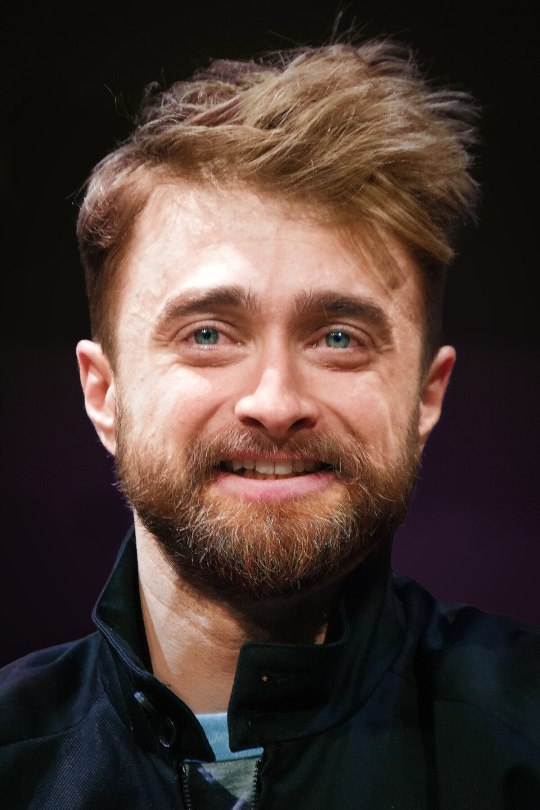


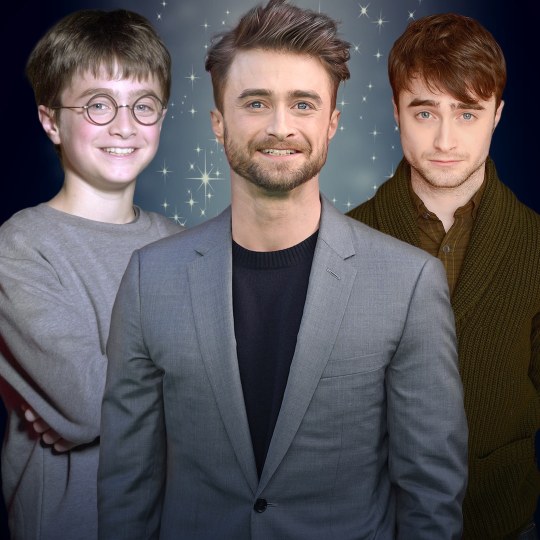
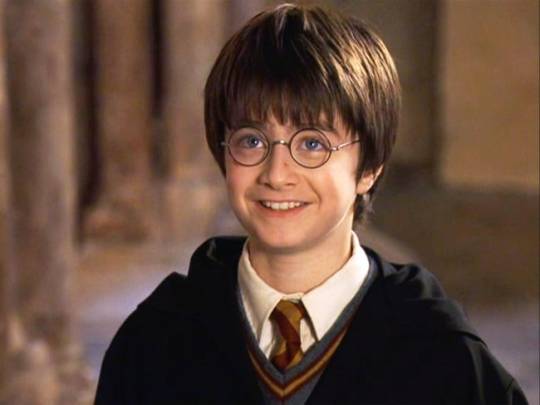
#DanielRadcliffe #HarryPotter #TheWizardingWorld #Hogwarts
2 notes
·
View notes
Text

Shelley Alexis Duvall (July 7, 1949 – July 11, 2024) was an American actress. Known for her collaborations with Robert Altman and for playing eccentric characters, she was the recipient of several accolades including nominations for a British Academy Film Award and two Primetime Emmys.
Born in Texas, Duvall was discovered by director Robert Altman, who was impressed with her upbeat presence and cast her in the black comedy film Brewster McCloud (1970). Despite her hesitance towards becoming an actress, she continued to work with him, appearing in McCabe & Mrs. Miller (1971) and Thieves Like Us (1974).
Duvall's breakthrough role was in Altman's Nashville (1975), and her leading role in his drama 3 Women (1977) won her the Cannes Film Festival Award for Best Actress and a nomination for the British Academy Film Award for Best Actress in a Leading Role. She followed this with a supporting role in Woody Allen's satirical romantic comedy Annie Hall and hosted Saturday Night Live (both 1977). She became famous for her leading roles across the 1980s, such as Olive Oyl in Altman's live-action feature version of Popeye and Wendy Torrance in Stanley Kubrick's horror film The Shining (both 1980).
Through the 1980s, Duvall appeared in Terry Gilliam's fantasy film Time Bandits (1981), the short comedy horror film Frankenweenie (1984), and the comedy Roxanne (1987). She ventured into producing television programming aimed at children and youth in the latter half of the 1980s, creating and hosting the programs Faerie Tale Theatre (1982–1987) and Nightmare Classics (1989), and earning Primetime Emmy Award nominations for creating and hosting Tall Tales & Legends (1985–1987) and Shelley Duvall's Bedtime Stories (1992–1994).
Across the 1990s, Duvall acted sporadically, playing supporting roles in Steven Soderbergh's thriller The Underneath (1995) and Jane Campion's drama The Portrait of a Lady (1996). After Manna from Heaven (2002), she left acting until returning for her final role in the horror film The Forest Hills (2023). Her mental health in the interim was covered by various media, briefly turning her private life public.
In 1990, she played Little Bo Peep in Mother Goose Rock 'n' Rhyme. In 1992, Think Entertainment joined the newly formed Universal Family Entertainment to create Duvall's fourth Showtime original series, Shelley Duvall's Bedtime Stories, which featured animated adaptations of children's storybooks with celebrity narrators and garnered her a second Emmy nomination. Duvall produced a fifth series for Showtime, Mrs. Piggle Wiggle, before selling Think Entertainment in 1993 and retiring as a producer. She subsequently appeared as the vain, over-friendly, but harmless Countess Gemini — sister to the calculating Gilbert Osmond (John Malkovich) — in Jane Campion's 1996 adaptation of the Henry James novel The Portrait of a Lady. A year later, she played a beatific nun in the comedy film Changing Habits and a besotted, murderous, ostrich-farm owner in Guy Maddin's fourth feature Twilight of the Ice Nymphs. The same year, she played Chris Cooper's character's gullible wife who yearns for a better life in Horton Foote's made-for-television film, Alone.
Duvall continued to make film and television appearances throughout the late-1990s. In 1998, she played Mrs. Jackson in the comedy Home Fries and Gabby in the direct-to-video children's film Casper Meets Wendy. Near the end of the decade, she returned to the horror genre with a minor role in Tale of the Mummy (1998), co-starring Christopher Lee and Gerard Butler, and The 4th Floor (1999), co-starring Juliette Lewis. In the 2000s, Duvall accepted minor roles, including as the mother of Matthew Lawrence's character in the horror-comedy Boltneck (2000) and as Haylie Duff's aunt in the independent family film Dreams in the Attic, which was sold to the Disney Channel but was never released. Following a small role in the 2002 independent film Manna from Heaven, Duvall took an extended hiatus from acting and public life.
After a 20-year absence, it was announced in October 2022 that Duvall would be returning to acting in The Forest Hills, an independent horror-thriller film directed and written by Scott Goldberg and co-starring Edward Furlong, Chiko Mendez, and Dee Wallace. The film, about a man (Mendez) tormented by nightmarish visions after receiving head trauma in the Catskill Mountains, was given an official trailer the following month.
Duvall married artist Bernard Sampson in 1970, but their marriage disintegrated as Duvall's acting career accelerated, leading to their divorce in 1974. While she was shooting Annie Hall in New York in 1976, Duvall met singer-songwriter Paul Simon. The couple began a relationship and lived together for two years. Their relationship ended when Duvall introduced Simon to her friend, actress Carrie Fisher; Fisher took up with Simon.[53] In the late 1970s, Duvall dated musician Ringo Starr.
Duvall was in a relationship with musician and former Breakfast Club lead vocalist Dan Gilroy from 1989 through the remainder of her life. The pair began their relationship while co-starring in the Disney Channel show Mother Goose Rock 'n' Rhyme, which was also produced by Duvall. She had no children.
On July 11, 2024, aged 75, Duvall died in her sleep at home in Blanco, Texas, due to complications of diabetes
2 notes
·
View notes
Text
GQ Hype Interview (2022)

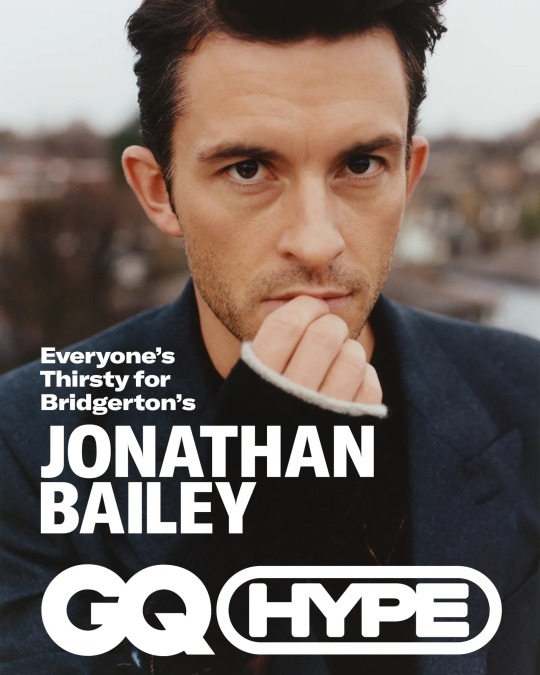
Jonathan Bailey felt lost and didn’t know what to do with himself. It was March 2020, and for nearly a year, the British actor had been immersed on the set of Bridgerton, Netflix’s horny and ornate period drama set in a fictional and fantastical 19th-century London. The show’s debut was months away, but working on it was consuming just about every conscious moment of Bailey’s life; his usually modern, slicked-back hair had been permed into the style of his character, Lord Anthony Bridgerton, a lothario of landed gentry, with two sharp muttonchops stroked against his cheek. “It was like being a part of some social experiment,” he thought. A wonderful abduction in which he’d be lifted from his normal life and sent tumbling like a stray astronaut into space, crashing into a new planet.
Here, on planet Bridgerton, gracious ringlet-haired women danced in ballgowns to string quartet covers of Billie Eilish, charming potential suitors who were fucking and flirting their way through the city, while an anonymous columnist would chronicle everybody’s secrets and stir up drama for London’s aristocracy. Until Bridgerton, Bailey’s own modest fame had stemmed from nearly three decades in theatre and television: popular prime-time detective drama Broadchurch, programmes from prestige talents, including Michaela Coel’s Chewing Gum and Phoebe Waller-Bridge’s Crashing, as well as prolific spells on West End stages, most notably in a gender-swapped reimagining of Stephen Sondheim’s classic Company, for which he won a best supporting actor Olivier Award.
“When you do a play, you share it with the audience every night,” says Bailey of his fondness for the stage. But then you’re done. Working on a period set such as Bridgerton was all-enveloping. After season one wrapped, Bailey should have been able to rest and recharge. But weeks later, the pandemic shut down the UK and, like everyone else, he found himself stuck in that gloomy malaise.
And then Bridgerton landed like a confetti bomb posted through his front door when it hit Netflix on Christmas morning. Suddenly, Bailey was on video calls with breakfast television and E! News from his bedroom. The first season of the Shonda Rhimes production went massive: some 82 million households watched the show over the festive season and into January 2021, a chart-topping figure only recently surpassed by Squid Game. The show’s second season, out in March, will be loaded with the expectation of a large and attentive audience, and for Bailey, there’s an added layer of pressure: Anthony will take the centre as the season’s main character. “The idea that [Bridgerton] is coming out again is a bit of a rug pull,” he says. “It’s quite scary.”
Bailey and I meet in Hyde Park during that strange limbo week between Christmas and New Year. He blends in well with his surroundings, wearing a black Gore-Tex jacket and green corduroy trousers. The signature muttonchops, which he grew himself for the show’s first season, are dialled down this time around – “a glow-up” for the character, he says with a laugh. Bailey had just returned to London after a holiday in Switzerland, though he’s spent much of his free time recently at a quiet spot in Sussex. It shielded him somewhat from the hysteria of the show’s success, which propelled its last two leads into new spheres of fame: Phoebe Dynevor, who plays Bailey’s onscreen sister, Daphne Bridgerton, will executive produce and star in the buzzy Amazon series Exciting Times. And the man who played her onscreen lover Simon Basset, Regé-Jean Page, will appear in 2023’s Dungeons & Dragons reboot.
We sit with our coffees on a bench by the Italian Gardens. At 33, Bailey doesn’t seem eager to get noticed on the street. Dispositionally, he’s one of those actors who’d rather work than be famous, who is more comfortable reciting Dickens for a small audience than he is wearing designer clothes on the red carpet. That he’s in this position at all feels both like a fluke and completely serendipitous.
Bailey grew up in Benson, a South Oxfordshire village of fewer than 5,000 people. When he was a child, his parents sent him to dance classes after he was inspired by a stage version of Oliver! he’d seen age four. He won his first part three years later, playing Tiny Tim in a Royal Shakespeare Company production of A Christmas Carol. (When reached for comment, the show’s director, Ian Judge, admired his success but couldn’t really remember him. “Humbling! Put that in there,” Bailey says.) Around the same time, his older sisters, who’d left home for university, would return for odd weekends, armed with stories of city nightlife. They would play Bailey pop and disco classics from a compilation CD called Dance to the Max – “queer anthems” – by artists such as Freddie Mercury and Frankie Goes to Hollywood. “I’d have to go up to my room and perfect the performance,” he says, before coming downstairs to sing and dance for his family.
Historically, he’s played valuable supporting roles that bolster a show’s narrative but has rarely occupied the main spotlight. Until this season of Bridgerton, one of his only other lead television roles was in a BBC children’s show based on the life of Leonardo da Vinci. “I’ve never gone into a screen test and had the ‘That’s him!’ reaction,” says Bailey. “I’ve always crept round through the back door.”
It was during his teen years that Bailey learned how to perform as someone he wasn’t, as many queer people do growing up outside big cities. He attended Magdalen College School in Oxford, a nearly 550-year-old institution that counts saints, sirs, and the composer Ivor Novello as past alumni. Bailey came out to family and friends in his early 20s and is, today, one of the few gay British actors working onscreen whose roles don’t seem defined wholly by their sexuality. Bridgerton has made him a sex symbol to many men and women, but he doesn’t like to talk about it. “Any actor who thinks they’re a sex symbol? Cringe,” he says.
I wonder whether his career decisions and his sexuality have stood in direct opposition to each other; if he ever felt the need to suppress that side of himself to get ahead. He recalls a story concerning a callous word of advice that someone once gave an actor friend during pilot season. “At the time he was told, ‘There’s two things we don’t want to know: if you’re an alcoholic or if you’re gay.’” The words stuck with Bailey. “All it takes is for one of those people in that position of power to say that, and it ripples through,” he says. “So, yeah, of course I thought that. Of course I thought that in order to be happy I needed to be straight.” The thing that’s always led Bailey’s decision-making in his career has been his own happiness, which is why it took so long for him to talk publicly about his own sexuality: “I reached a point where I thought, ‘Fuck this’, I’d much prefer to hold my boyfriend’s hand in public or be able to put my own face picture on Tinder and not be so concerned about that, than get a part.”
That instinct to stay true to himself is part of what makes him good at his job. “Jonny operates at a different voltage,” says Phoebe Waller-Bridge, his Crashing co-star. “He’s a meteorite of fun with an incredible amount of energy and playfulness. Smouldering at one turn and then utterly innocent at the next, but all the time playing with this sense of untapped danger. That is the quality I love most about Jonny as a person and as a performer: his danger.”
Bridgerton is based on a series of New York Times best-selling romance novels by American author Julia Quinn, and Bailey treats the source material with the same level of tact and seriousness as he would King Lear. What might seem like a straightforward, frothy show about scandal and romance in Regency-era England harbours a deeper meaning to Bailey, specifically in playing a philanderer such as Anthony. As a teenager, period dramas were a Bailey household staple, but “you never really got behind the men,” Bailey observed, “or know why they’re avoidant and toxic.” This season, Bailey gets to dig into the show’s narrative, exploring exactly why the show’s men are avoidant and toxic. Anthony yearns to settle down, but struggles to find a woman deserving of the title of Lady Bridgerton. The shots of Anthony’s post-coital buttocks and his flippant remarks about women’s inadequacies could be seen as signs of a crass and shallow character. But Bailey sees them as symptoms of a man grieving the loss of his father, and who is struggling to assume the patriarchal position. “Going into the first season, I wanted to fully break Anthony,” the show’s creator Chris Van Dusen says, “so that we could put him back together in the second.”
Bailey, meanwhile, says that he “started to think about [Anthony’s] charm,” and specifically “what it means to be a rake, and how his anxiety and self-hatred plays into that.” Anthony also forced Bailey to, in his words, “think about love a lot.” It’s one of the few allusions to his personal life that Bailey seems to drop, almost by accident: “You put your life experiences into [the work]. What’s most interesting is not necessarily having to talk about what that is, and keeping a sense of privacy.” He’s navigated that carefully, the balance between being affable and guarded when the circumstances call for it. His Company costar, Broadway legend Patti LuPone, remembers the former most fondly. “He’s quite open as a human being,” she tells me. “I love him.”
After Bridgerton’s release, an old friend, Marianne Elliott, Company’s Tony Award-winning director, reached out and gave Bailey what he considers one of the greatest holy-shit moments of his career: an opportunity for them to work together again. “We’d read many scripts with the specific task of finding something for Jonny Bailey,” she tells me. Eventually, they settled on Cock, premiering this spring, a scintillating, dialogue-heavy and stage-directionless Mike Bartlett play about a man named John, his ex-boyfriend (played by Taron Egerton), and the woman that he’s fallen for.
That side of things, the award-winning work, has helped catalyse Bailey’s other holy-shit moments, which seem to be happening with more frequency. These days, producers approach him to offer roles: the days of creeping through the back door are over. Often, these projects clash with Bailey’s Bridgerton schedule, and some producers will say, “No, don’t worry. We’ll wait”. I joke that it must be strange to have people waiting for him now, and Bailey retreats inside himself. Hands in his pockets, a little embarrassed. But smiling. “Yeah…I mean…that sounds…I can say that now but, you always think they’re going to move on – and it’s only for a moment,” he says sheepishly. Bridgerton is wonderful, he adds, “but in 20 years, you don’t want to be famous. You want a sustained career.”
SOURCE
17 notes
·
View notes
Photo

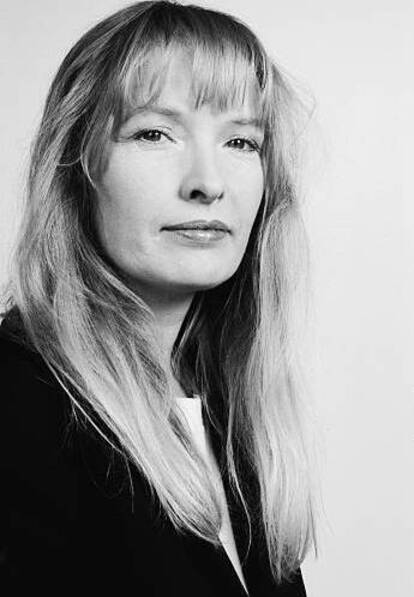
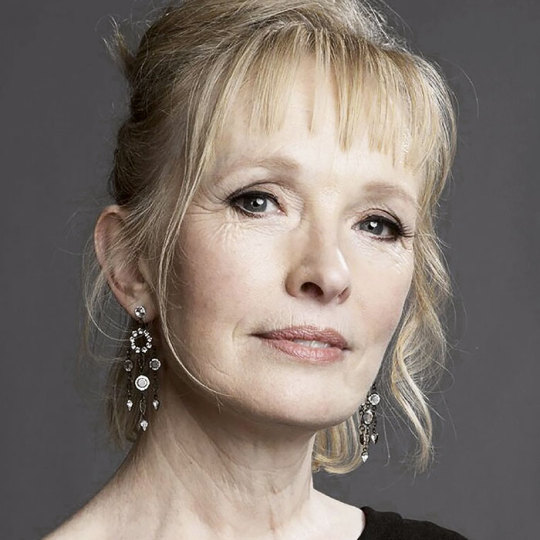



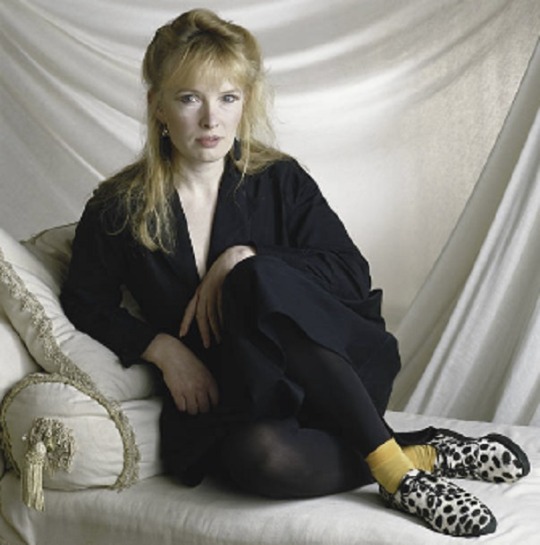
Happy Birthday actress Lindsay Duncan born in Edinburgh November 7th 1950.
Lindsay’s father had served in the army for 21 years before becoming a civil servant. Her parents moved to Leeds while she was still a child.
After studying drama in London she began working on Eighties TV productions such as Dead Head and Traffik.
She was awarded a Laurence Olivier award for best actress in a new play in 1987 for her portrayal as La Marquise de Merteuil in an RSC production of Les Liaisons Dangereuses, and from there her career went from strength to strength.
My favourite roles from Lindsay are playing the girlfriend in the excellent ITV series Travelling man opposite Leigh Lawson, and the bitchy Barbara Douglas in Alan Bleasdale’s GBH. In 2009 Lindsay played Margaret Thatcher in the BBC feature length drama Margaret, at the time she commented about the former prime minister that she loathed everything the former Thatcher stood for.
Other TV appearances included, A year in Provence, Reilly, Ace of Spies, Spooks, Doctor Who and more recently Churchill’s Secret, all quality dramas. Her only role I know of with a Scottish accent was the 2003 film Afterlife which also starred Kevin McKidd and Isla Blair.
Fans of Benedict Cumberbatch in Sherlock might remember her as Lady Smallwood, she was also in the recent series A Discovery of Witches on Sky in 2018, appearing in 5 of the 8 episodes.
Lindsay cut her teeth in theatre and has always supported this genre with stage roles all through her career as well as starring in several films ranging from Star Wars: Episode I to Mansfield Park. Her latest roles have been in Inside No. 9,, a British black comedy anthology TV show and in the film A Banquet, a British horror film directed by Scottish filmmaker and writer Ruth Paxton
Next up for Lindsay is Doctor Jekyll, yet another re-imagining of the infamous Dr. Jekyll from Robert Louis Stevenson's 1886 novella The Strange Case of Dr Jekyll and Mr Hyde. Eddie Izzard has been cast as Jekyll. She has recently been touring theatres in The Dance of Death.
Lindsay is married to fellow Scottish actor Hilton McRae, and the couple have a son, Cal, born in 1991.
#Scotland#scottish#anglo-scottish#Actress#stage#game screenshots#television#film.#theatre#happy birhtday
20 notes
·
View notes
Text
Day 12: Christian Borle

This is from 2009.
More information in Keep Reading.


It started as a book series…
The "Starcatchers" books by Dave Barry and Ridley Pearson...


...are an unauthorized series reboot that was published by Hyperion Books (a subsidiary of Disney) in the US and by Walker Books in the UK.
The first book is Peter and the Starcatchers (2004). Set on a ship called Never Land featuring Peter and an earlier group of Lost Boys. In 2005, the publisher announced plans for Disney to adapt the book as a digitally animated movie. Second and third are Peter and the Shadow Thieves (2006) and Peter and the Secret of Rundoon (2007). The fourth book is Peter and the Sword of Mercy (2009), where twenty-three years since Peter and the Lost Boys returned from Rundoon. The Bridge to Never Land (2011), is an expanded part and fifth book where a pair of siblings, Sarah and Aidan Cooper drawn from the modern world as they follow clues left by an ancient coded document. The "Never Land Books" by Dave Barry, Ridley Pearson, and Greg Call (ill.), is a series of unauthorized spin-off chapter books. Based on the continuity established by the "Starcatchers" novels, for a younger audience. The books are: Escape from the Carnivale (2006), Cave of the Dark Wind (2007) and Blood Tide (2008).


Captain Hook becomes this…
In the novel Peter and the Starcatchers by Dave Barry and Ridley Pearson, Captain Hook is distinguished by halitosis, beady black eyes, a pock-marked face, and perpetual filth of his person and surroundings contrasting strongly with J. M. Barrie's Etonian gentleman. The novel, which takes place before the Captain meets Peter Pan, calls Hook "Black Stache" for his prominent moustache, and his ship is called the Sea Devil; he captures the Jolly Roger, originally a British ship called the Wasp, later. Black Stache is renamed "Captain Hook" in the second instalment, Peter and the Shadow Thieves. In Barry and Pearson's book, his left hand is accidentally cut off by Peter.

But then it got adapted into a musical/play….
The first book, "Peter and the Starcatchers" was adapted into a play similarly titled "Peter and the Starcatcher" winning several Tony awards. It debuted in the winter of 2009 at La Jolla Playhouse as part of an arrangement with Disney Theatrical. It was re-staged Off-Broadway in 2011 and opened on Broadway on April 15, 2012, at the Brooks Atkinson Theatre.


Captain Hook was made into this…
In Rick Ellis' theatrical adaptation of the Barry-Pearson novel, Black Stache (portrayed in the original production by Christian Borle, who won a Tony Award for the role) is a witty, poetical, but psychotic pirate prone to malapropisms and the occasional pratfall. Similar to the Disney film character, Black Stache resembles both a dangerous villain and a comic buffoon. The last of a line of villains, he seeks to become a great villain by fighting a great hero and finds one in Peter. His hand is cut off not by Peter, but accidentally severed when he slams the lid of a trunk in a fit of rage.
I am very disappointed in the creators.
But there is also this one...
Black Stache: A highly intelligent but malapropism-prone pirate chief, so-called due to the black mustache that is a trademark in his family. In search of a great hero who he can oppose to become a great villain, Stache is given to scenery chewing and anachronistic jokes and has a hook in his future. The name ‘Black Stache’ is a reference to the pirate Blackbeard.
Blackbeard will be mentioned in another Inktober.
At least the actor has blue eyes….but there is nothing else in Barrie's character here...just the mustache from which he gets his name.
Anyways, here are the play trailers and at the Tony awards….
youtube
youtube
"And I bet your milkshake brings all the boys to the yard but I'm not interested!" is the best.
#for the book-it is left hand#for the play-I think it is left as well#2009 for the theatrical version#2004 first book#2006 second book#referenced later in Inktober#Tony Awards#Christian Borle#Black Stache#2008 third book in minor series#2006 first book in minor series#2007 second book in minor series#2011 fifth book#2009 fourth book#2007 third book#black stache is a chaotic character#to say the least#Youtube#reference to another Inktober#Captain James Hook
4 notes
·
View notes